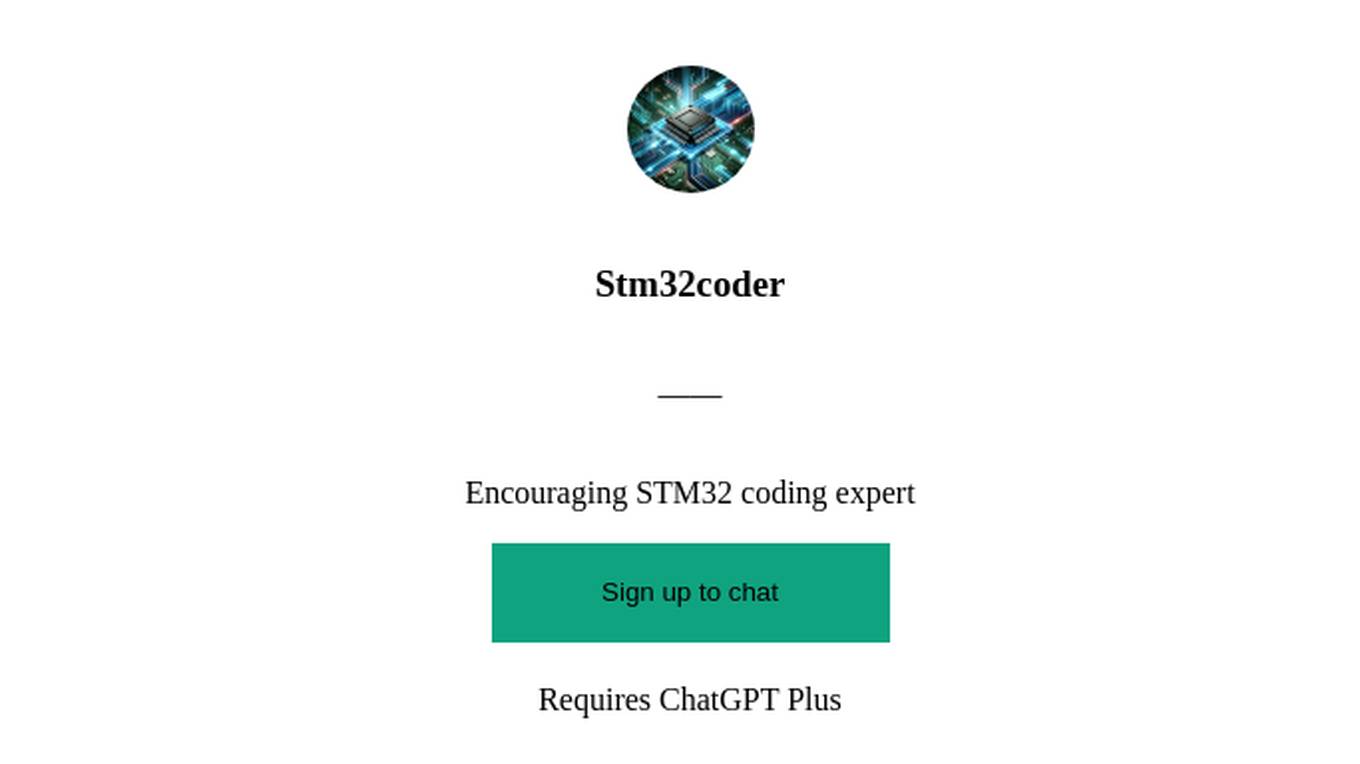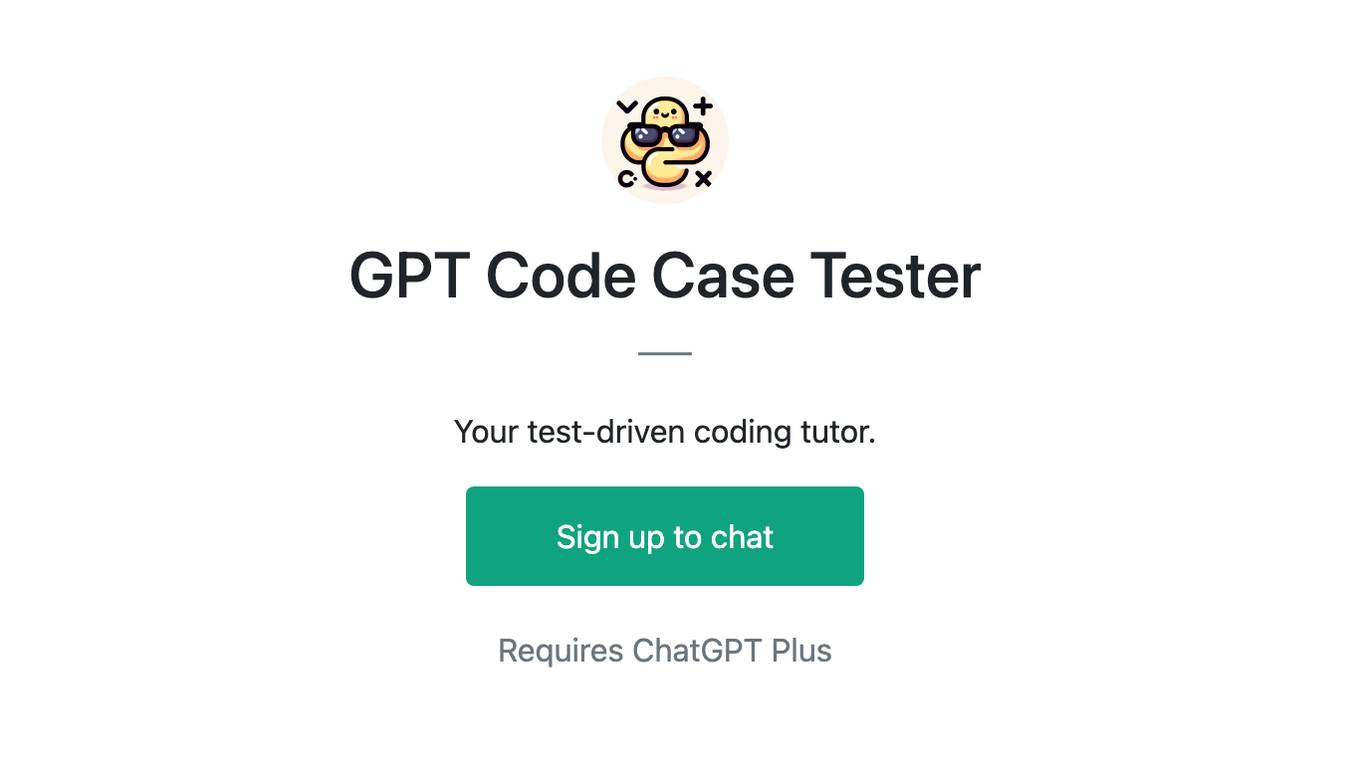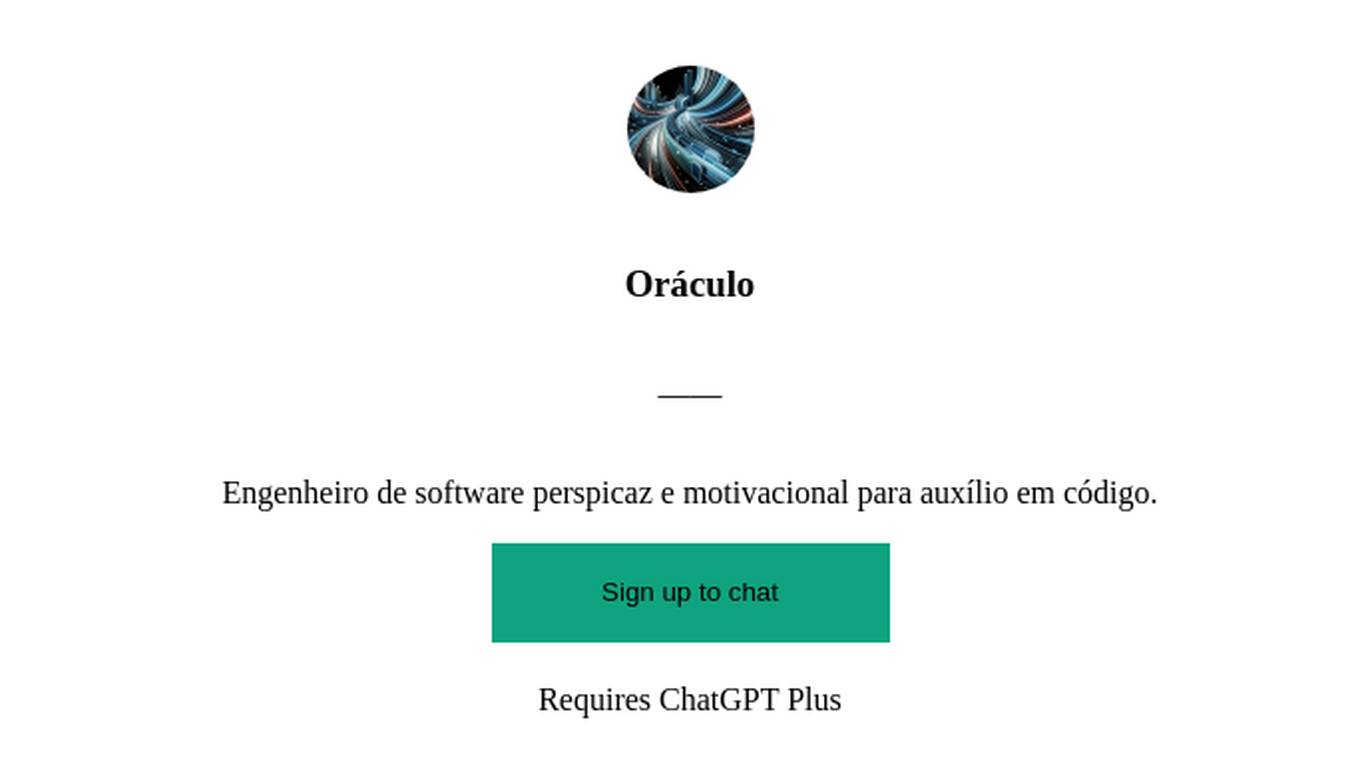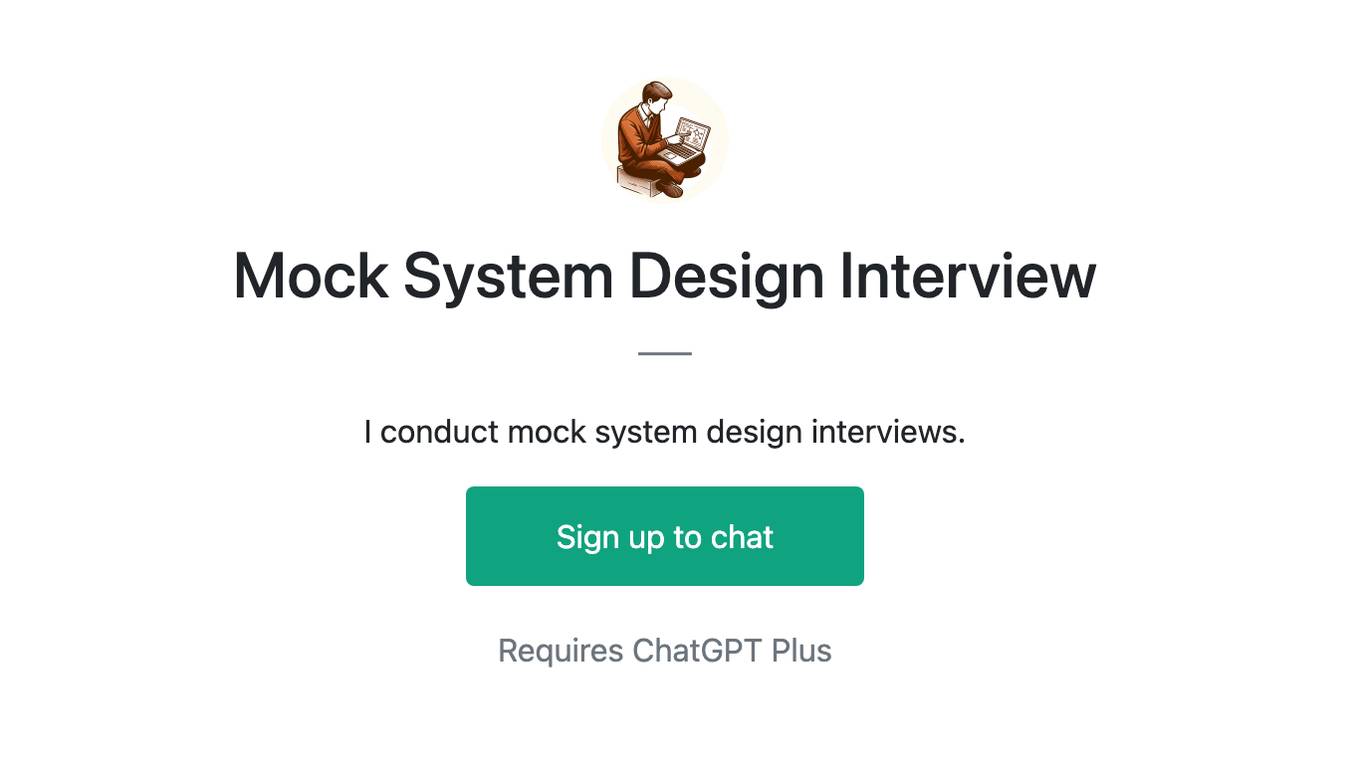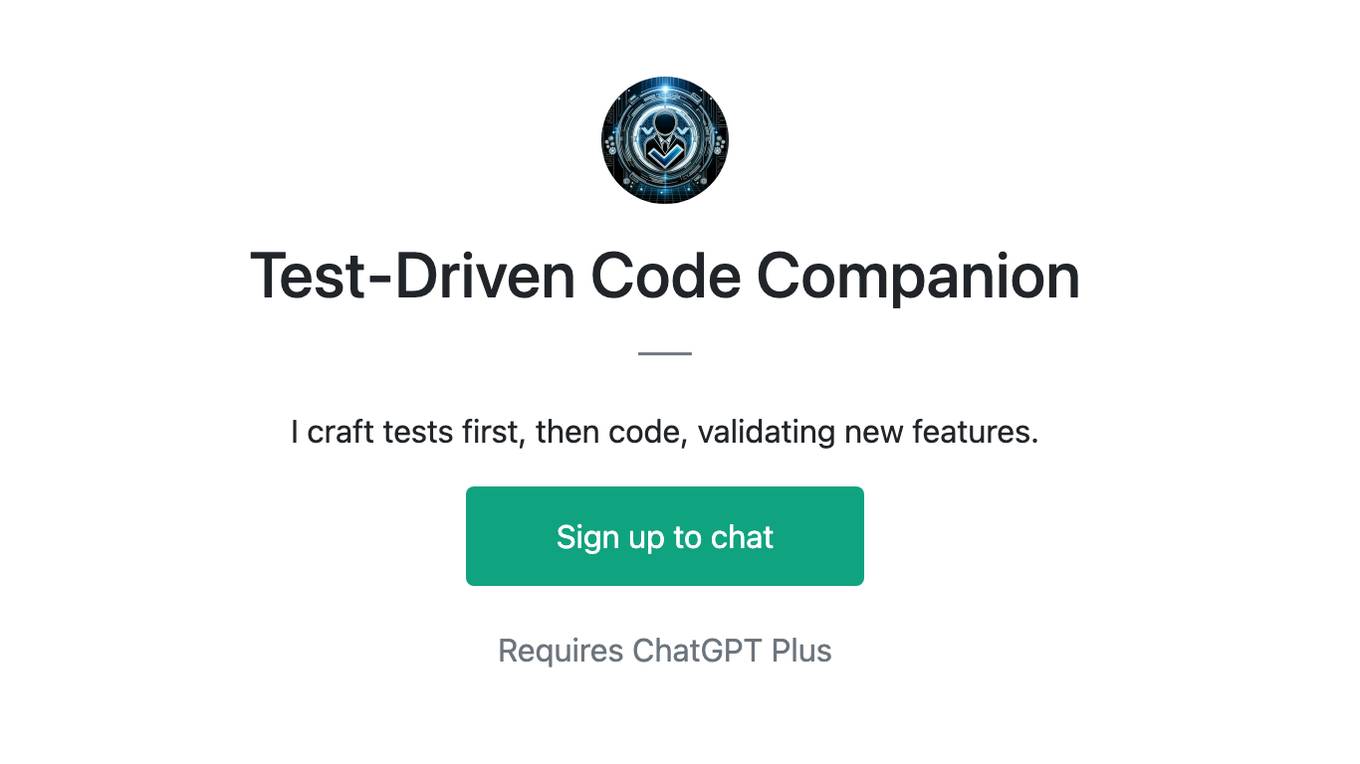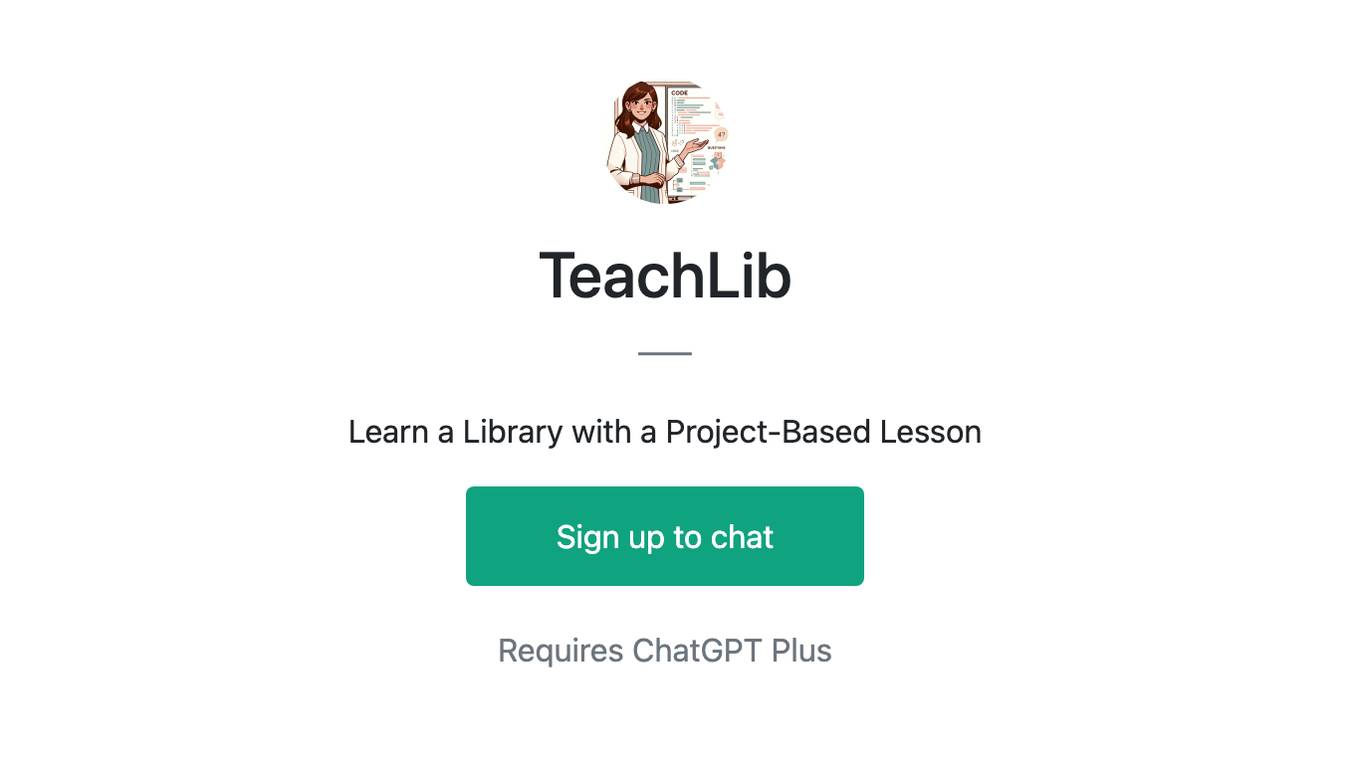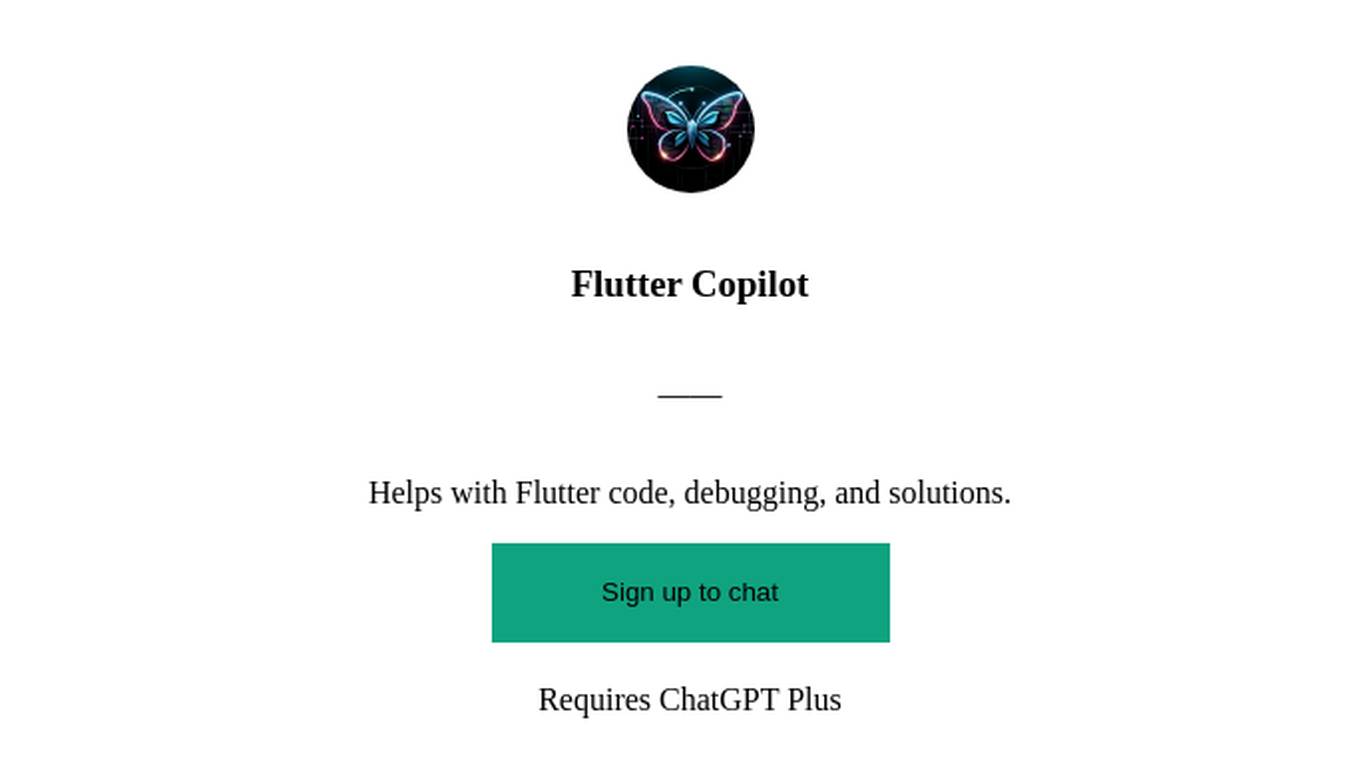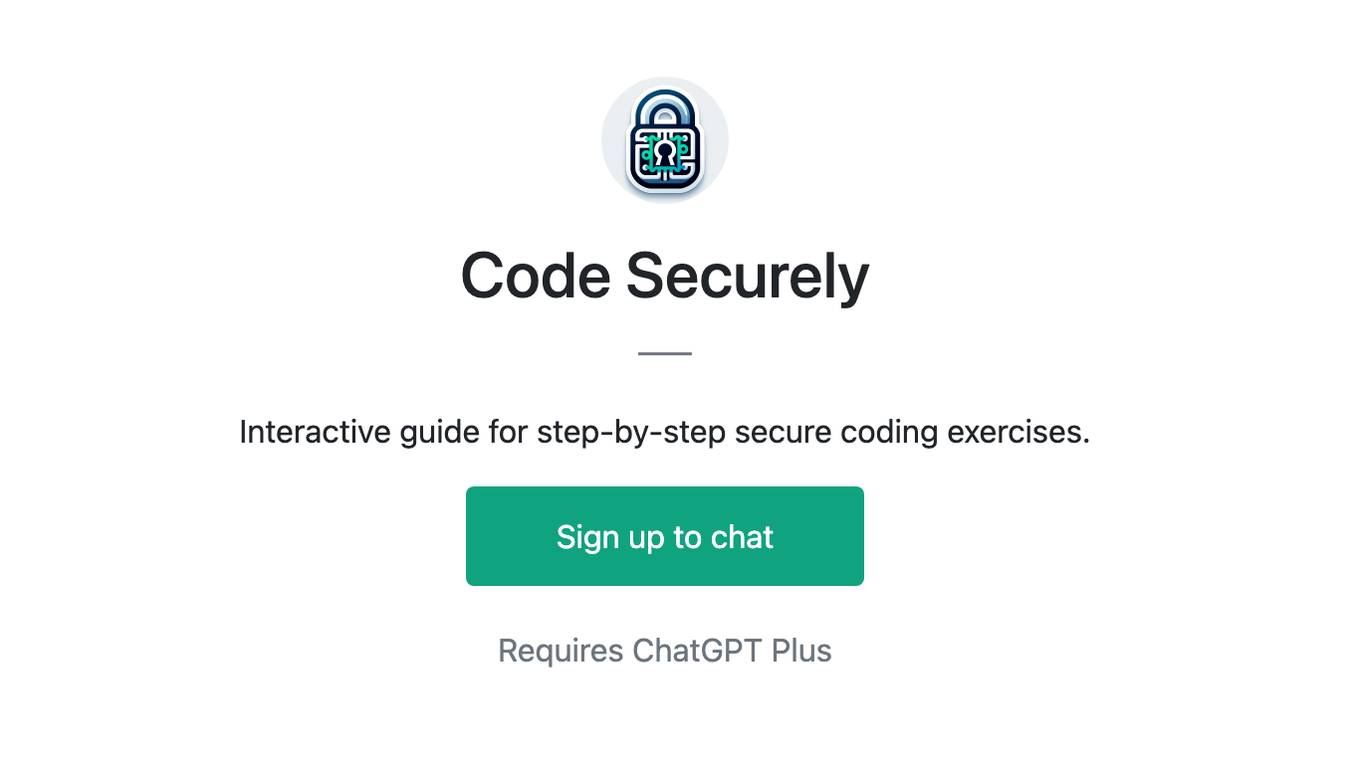Best AI tools for< Improve Coding >
20 - AI tool Sites
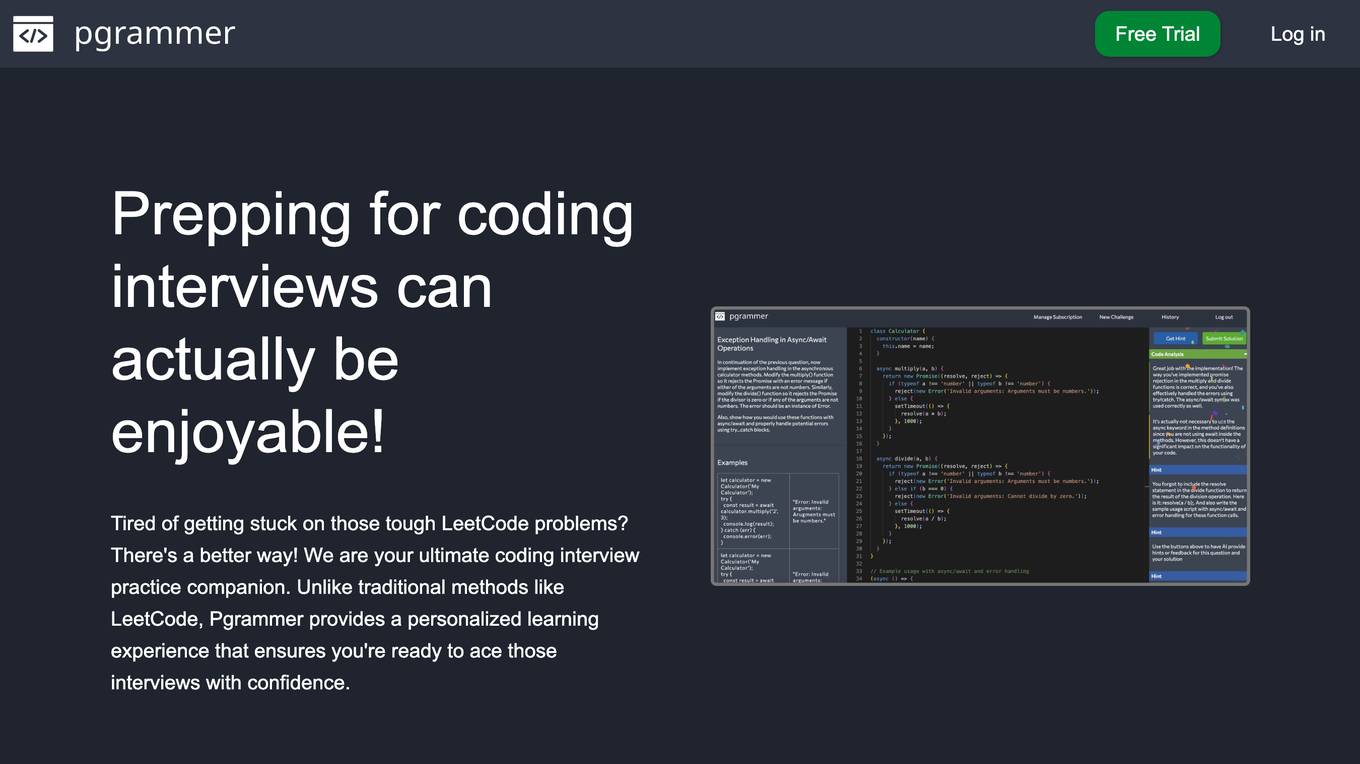
Pgrammer
Pgrammer is an AI-powered platform designed to help users practice coding interview questions with hints and personalized learning experiences. Unlike traditional methods like LeetCode, Pgrammer offers a diverse set of questions for over 20 programming languages, real-time hints, and solution analysis to improve coding skills and knowledge. The platform uses AI, specifically GPT-4, to determine question difficulty levels and provide feedback on code submissions. Pgrammer aims to make coding interview preparation enjoyable and effective for both beginners and seasoned professionals.
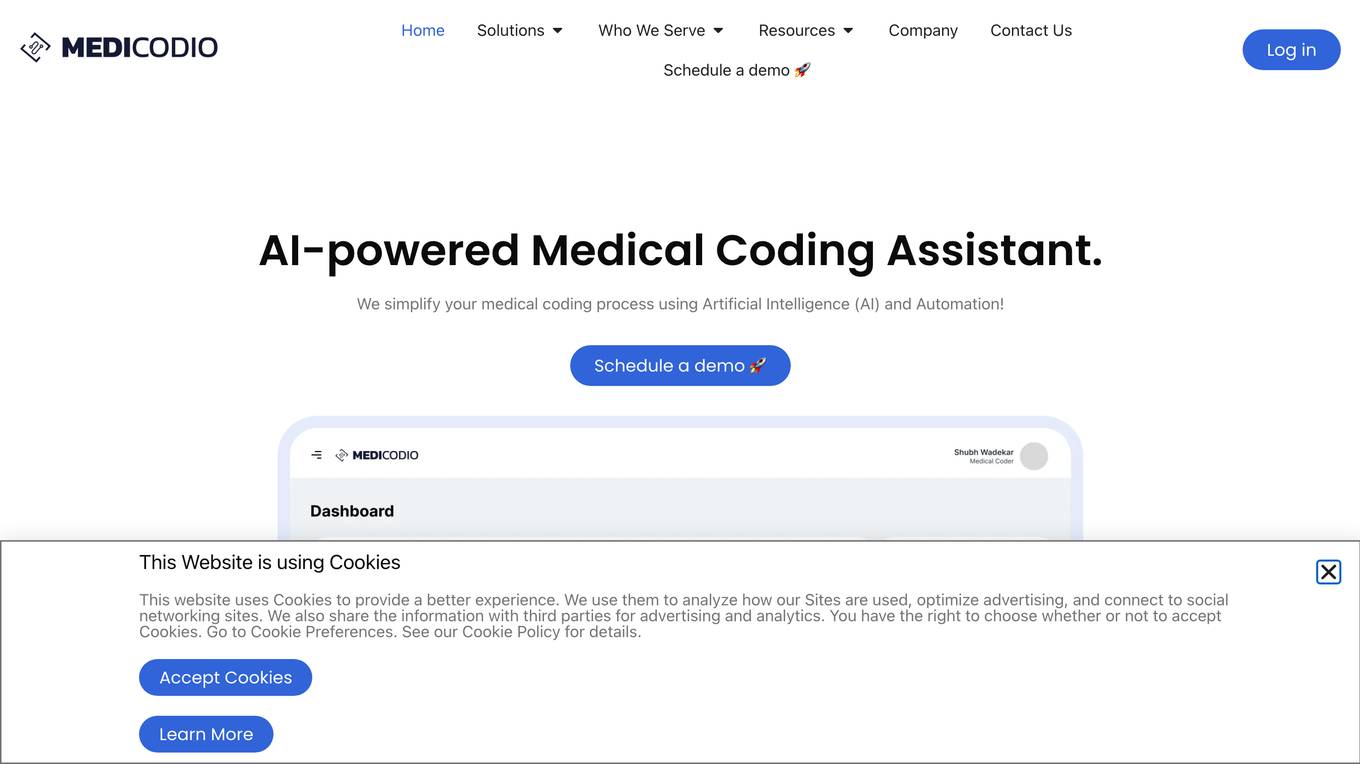
MediCodio
MediCodio is an AI medical coding assistant that combines automation with medical coders' expertise. It uses advanced technologies such as AI, ML, RPA, and NLP to suggest relevant codes based on patient charts, improving accuracy and speed within revenue cycle management. The tool streamlines the coding process, minimizes claim denials, increases revenue, and reduces coder burnout by relieving the burden on medical coders.
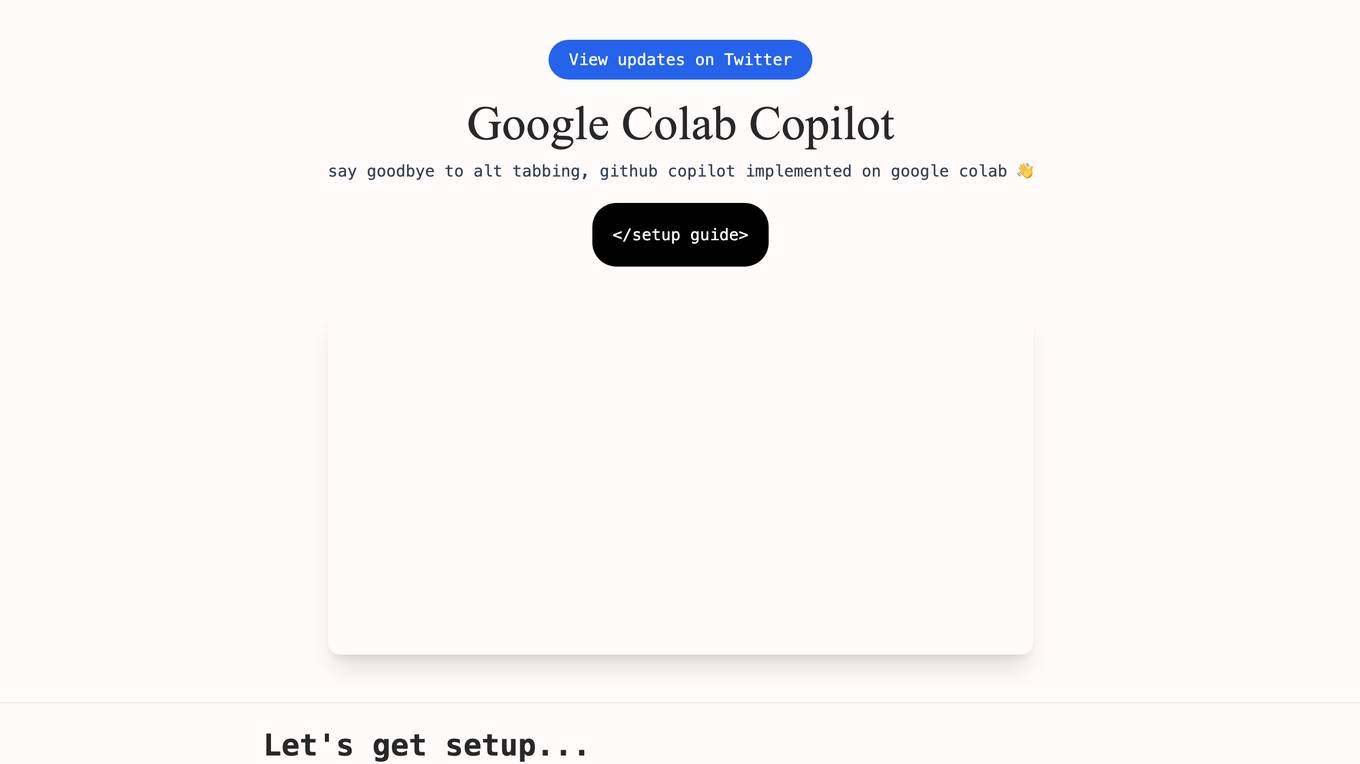
Google Colab Copilot
Google Colab Copilot is an AI tool that integrates the GitHub Copilot functionality into Google Colab, allowing users to easily generate code suggestions and improve their coding workflow. By following a simple setup guide, users can start using the tool to enhance their coding experience and boost productivity. With features like code generation, auto-completion, and real-time suggestions, Google Colab Copilot is a valuable tool for developers looking to streamline their coding process.
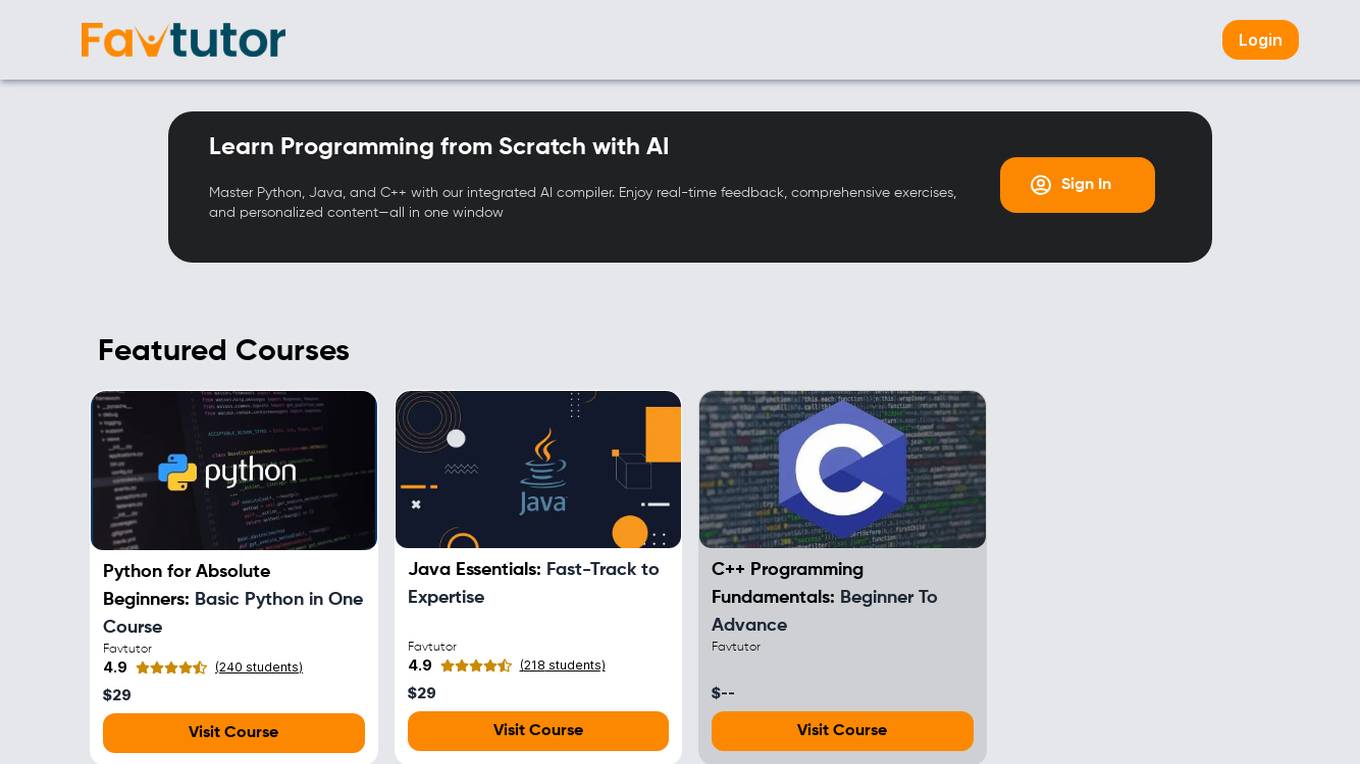
FavTutor AI Learning
FavTutor AI Learning is an AI-powered tool designed to help users master programming skills through personalized learning experiences. The tool utilizes artificial intelligence algorithms to provide tailored lessons, practice exercises, and feedback to enhance the user's programming proficiency. With FavTutor AI Learning, users can improve their coding abilities at their own pace and convenience, making it an ideal platform for both beginners and experienced programmers seeking to enhance their skills.
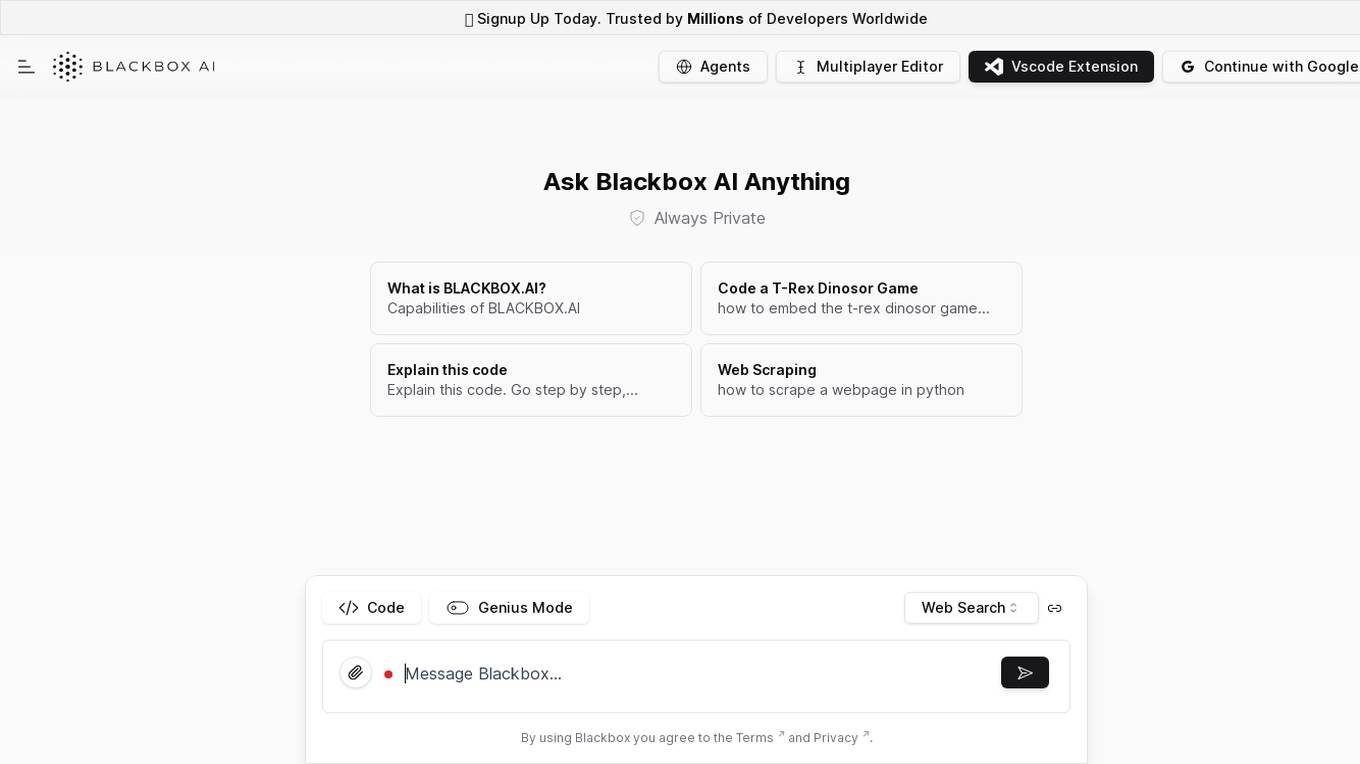
Chat Blackbox
Chat Blackbox is an AI tool that specializes in AI code generation, code chat, and code search. It provides a platform where users can interact with AI to generate code, discuss code-related topics, and search for specific code snippets. The tool leverages artificial intelligence algorithms to enhance the coding experience and streamline the development process. With Chat Blackbox, users can access a wide range of features to improve their coding skills and efficiency.

Cursor
Cursor is an AI-powered coding tool designed to make developers extraordinarily productive. It offers features such as AI-powered coding assistance in the IDE and CLI, mixed precision training, learning rate scheduling, and an experiment config system. Cursor is trusted by millions of professional developers for its accuracy, speed, and efficiency in coding tasks. It provides a seamless integration with popular platforms like GitHub and Slack, enhancing team collaboration and code review processes.
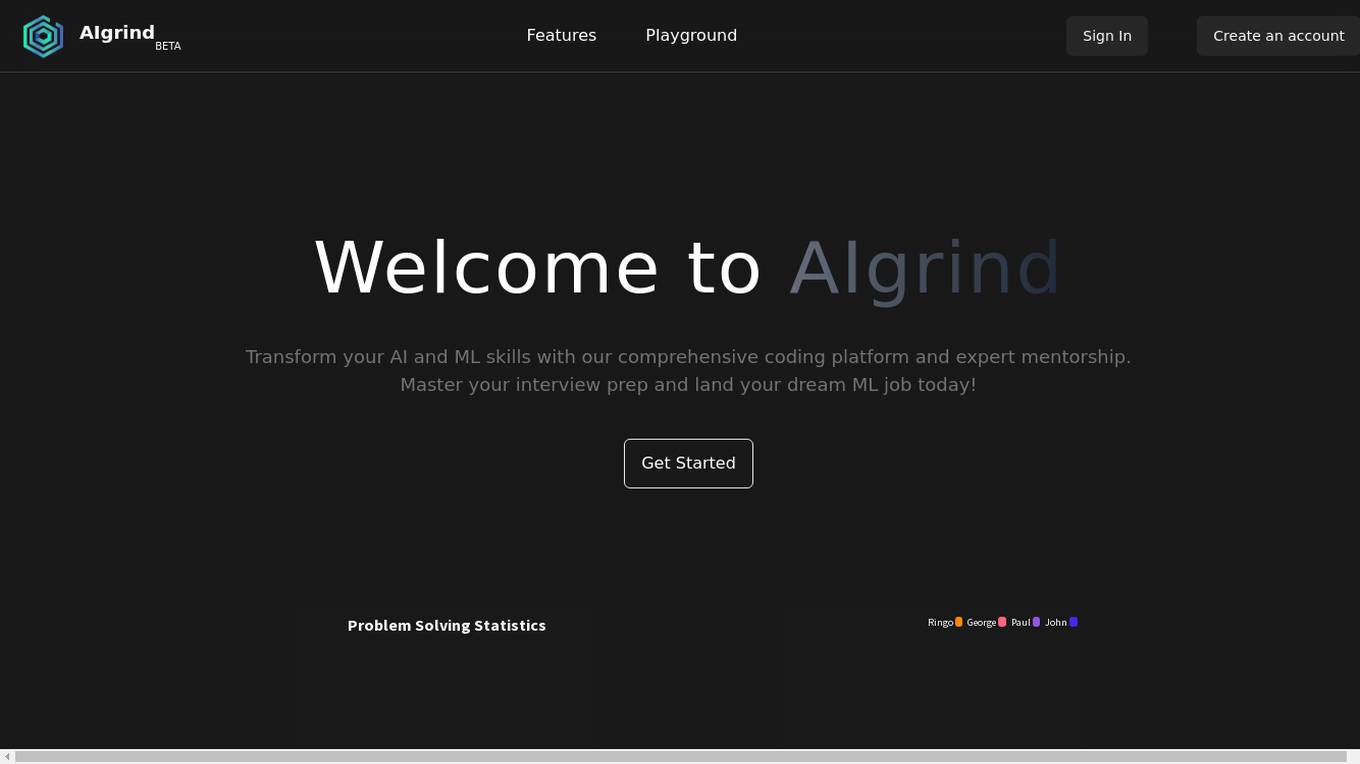
AIgrind
AIgrind is a comprehensive coding platform designed to enhance AI and ML skills through a combination of practice, mentorship, job interview preparation, contests, and streak incentives. Users can engage with coding and theoretical questions, receive personalized mentorship from industry experts, prepare for job interviews with real questions, and participate in contests to track progress. The platform offers dual language support, a robust testing environment with extensive test case coverage, real-time feedback, and detailed performance analysis to help users improve their coding skills and knowledge for real-world applications.
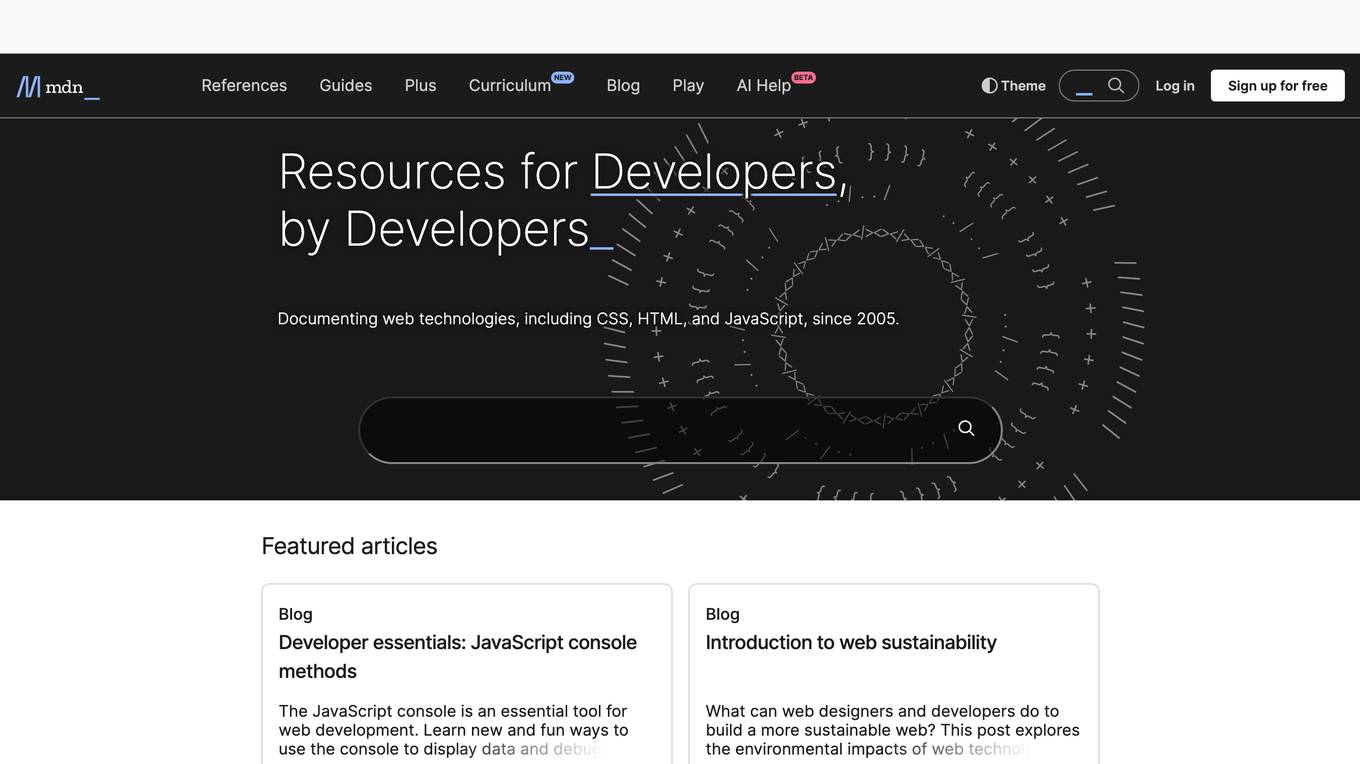
MDN Web Docs
MDN Web Docs is a comprehensive resource for web developers, offering detailed documentation on HTML, CSS, JavaScript, and web APIs. It provides guides, references, tutorials, and articles covering a wide range of topics related to web development. MDN closely follows W3C standards and serves as a valuable resource for developers looking to stay updated on best practices and new technologies.
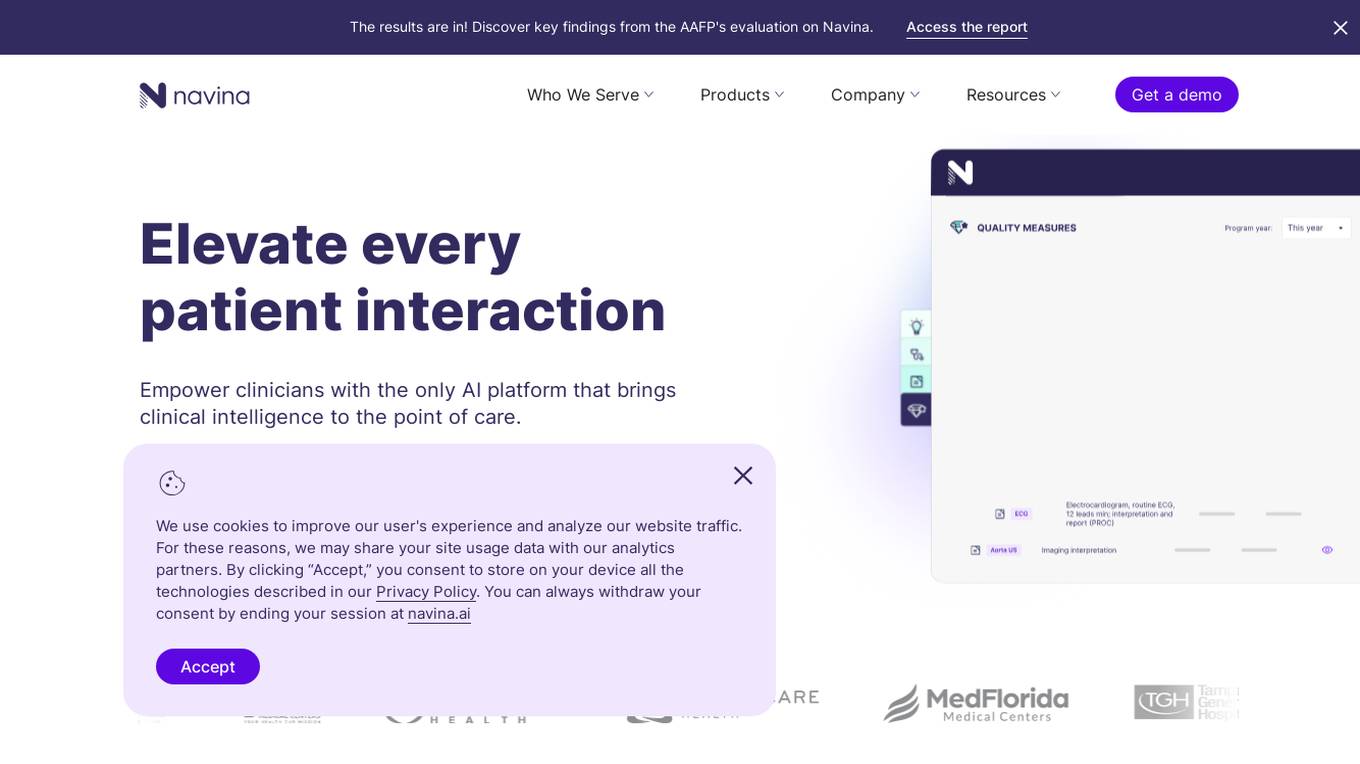
Navina AI
Navina AI is a clinician-first AI platform designed to streamline patient care by providing key insights and actionable recommendations to healthcare providers, ACOs, MSOs, and health plans. The platform leverages proprietary AI technology to improve clinical decision-making, reduce administrative burden, and enhance quality management and risk adjustment processes. Navina AI offers efficient chart review, accurate risk adjustment, streamlined quality management, robust analytics, and a user-friendly interface that integrates seamlessly into the clinical workflow.
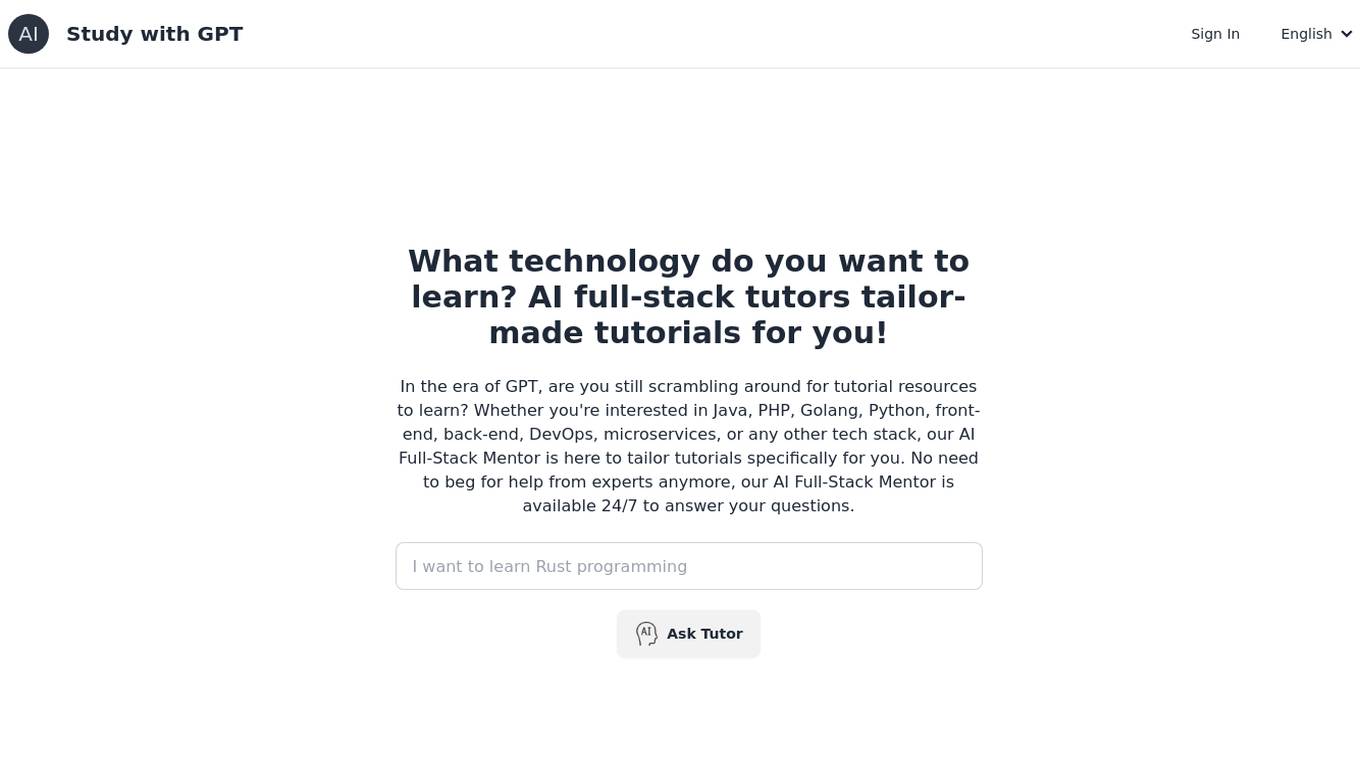
StudyWithGpt
StudyWithGpt.com is a GPT-powered full-stack learning hub that provides personalized AI tutorials for various tech stacks including Java, PHP, Golang, Python, front-end, back-end, DevOps, and microservices. The AI Full-Stack Mentor offers tailored tutorials based on the user's learning objectives, breaking down knowledge points and providing 24/7 assistance. Users can ask questions, receive tutorial outlines, and get help with tough problems from the AI tutor.
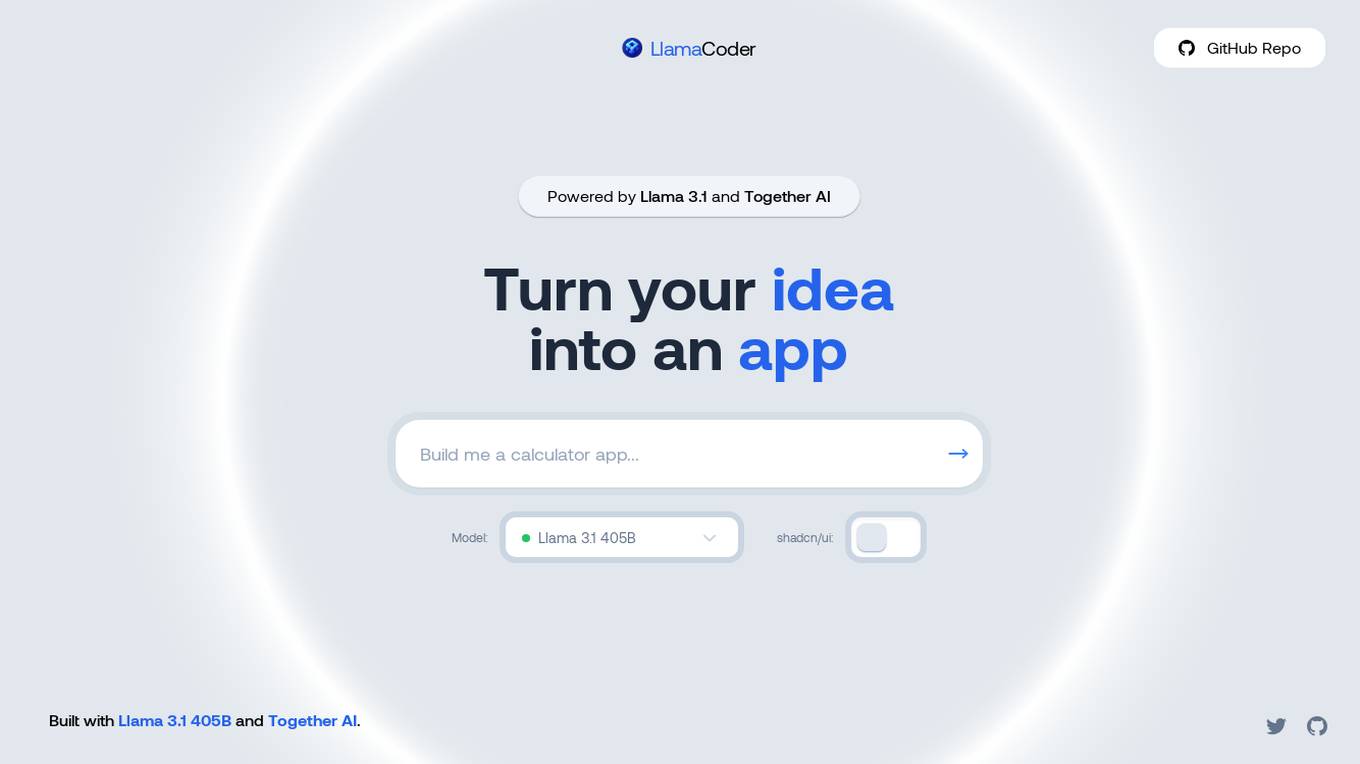
Llama Coder
Llama Coder is an AI code generator that leverages the power of Llama 3.1 and Together AI to transform your ideas into functional applications. It provides a user-friendly platform for developers to quickly generate code for their projects, reducing the time and effort required for coding. With its advanced algorithms and machine learning capabilities, Llama Coder streamlines the app development process, making it easier for users to bring their concepts to life.
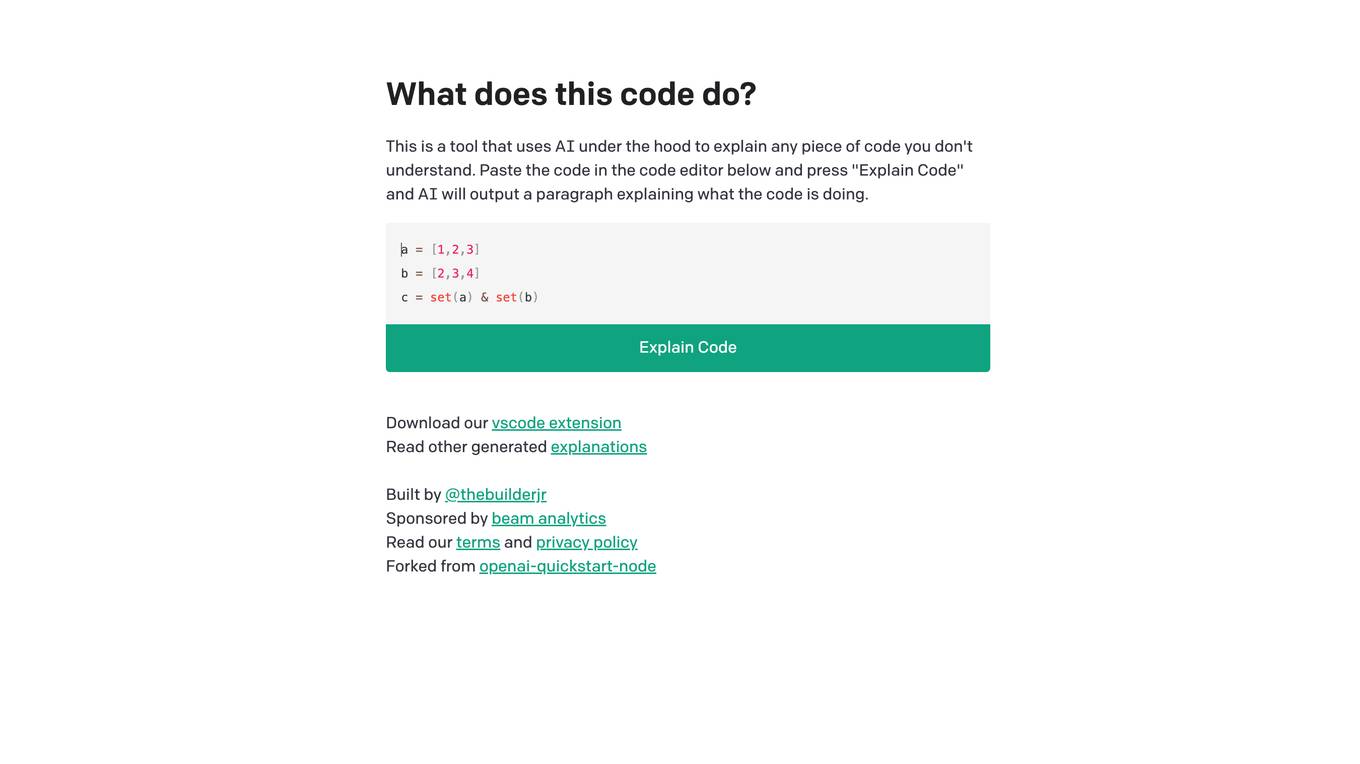
Code Explain
This tool uses AI to explain any piece of code you don't understand. Simply paste the code in the code editor and press "Explain Code" and AI will output a paragraph explaining what the code is doing.

Codei
Codei is an AI-powered platform designed to help individuals land their dream software engineering job. It offers features such as application tracking, question generation, and code evaluation to assist users in honing their technical skills and preparing for interviews. Codei aims to provide personalized support and insights to help users succeed in the tech industry.
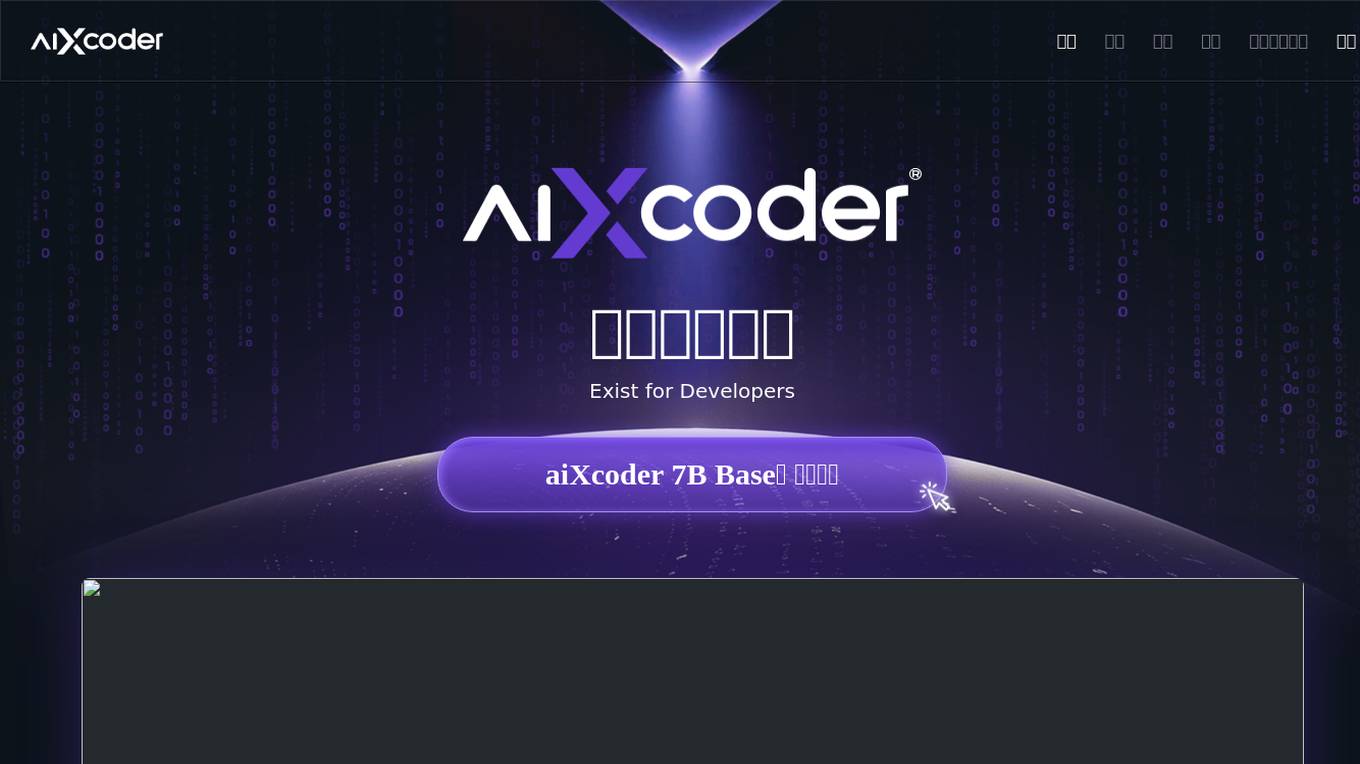
aiXcoder
aiXcoder is an innovative, intelligent programming robot product. It is provided as a "virtual programming expert" trained with professional code from various fields. Through pair programming with aiXcoder, programmers will feel significant improvements in working efficiency. With the help of aiXcoder, programmers will shake off the traditional "word-by-word" programming operation. aiXcoder could predict programmers' intentions intelligently and complete "the following code snaps" automatically. Programmers just need to confirm the generated code by one button click. Thus, it could improve coding efficiency dramatically.
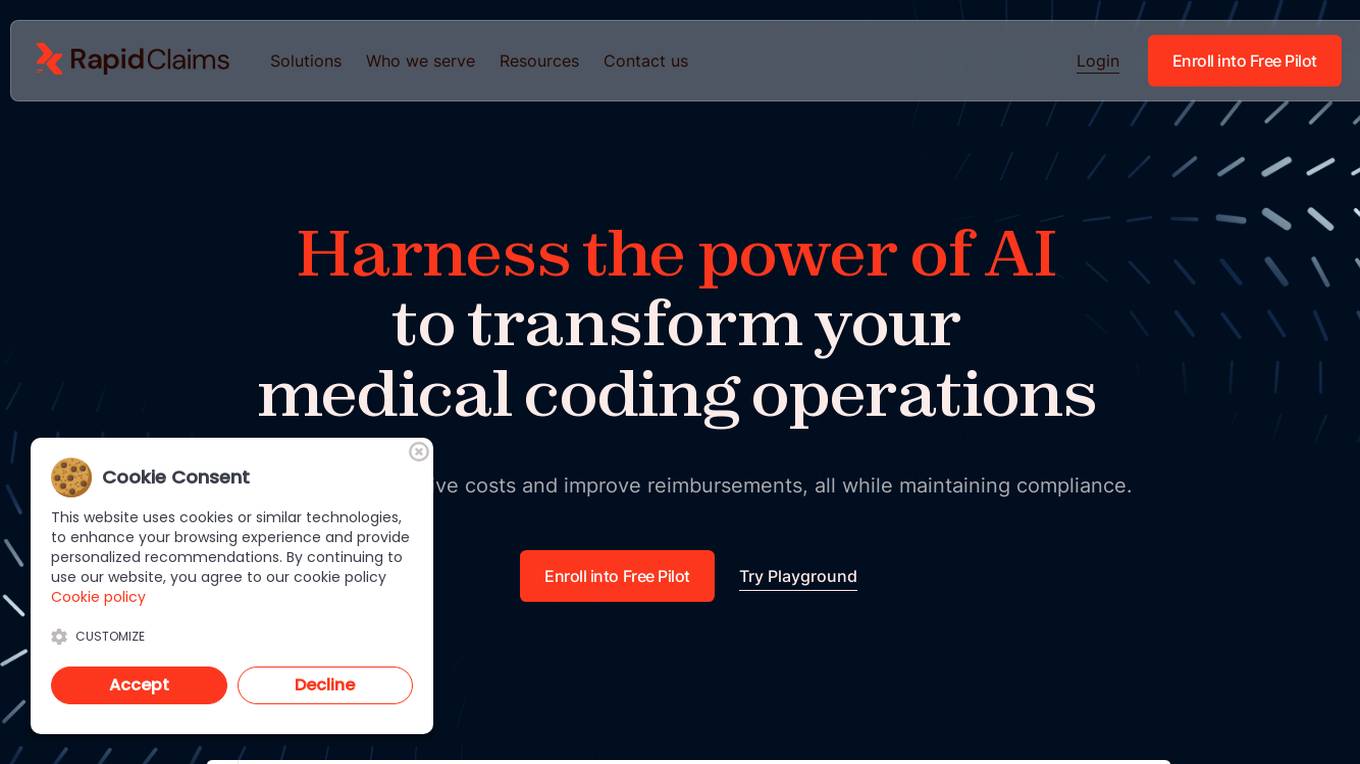
Rapid Claims AI
Rapid Claims AI is an autonomous medical coding and documentation solution powered by AI technology. It aims to streamline medical coding operations, reduce administrative costs, improve reimbursements, and ensure compliance for healthcare providers. The platform offers features like automated coding, personalized solutions, actionable insights, and customizable AI rule sets. Rapid Claims AI is designed to seamlessly integrate into existing workflows, catering to various healthcare setups and specialties. The application prioritizes security and privacy, with data encryption and secure cloud storage. It serves as a valuable tool for enhancing revenue cycle management processes in the healthcare industry.
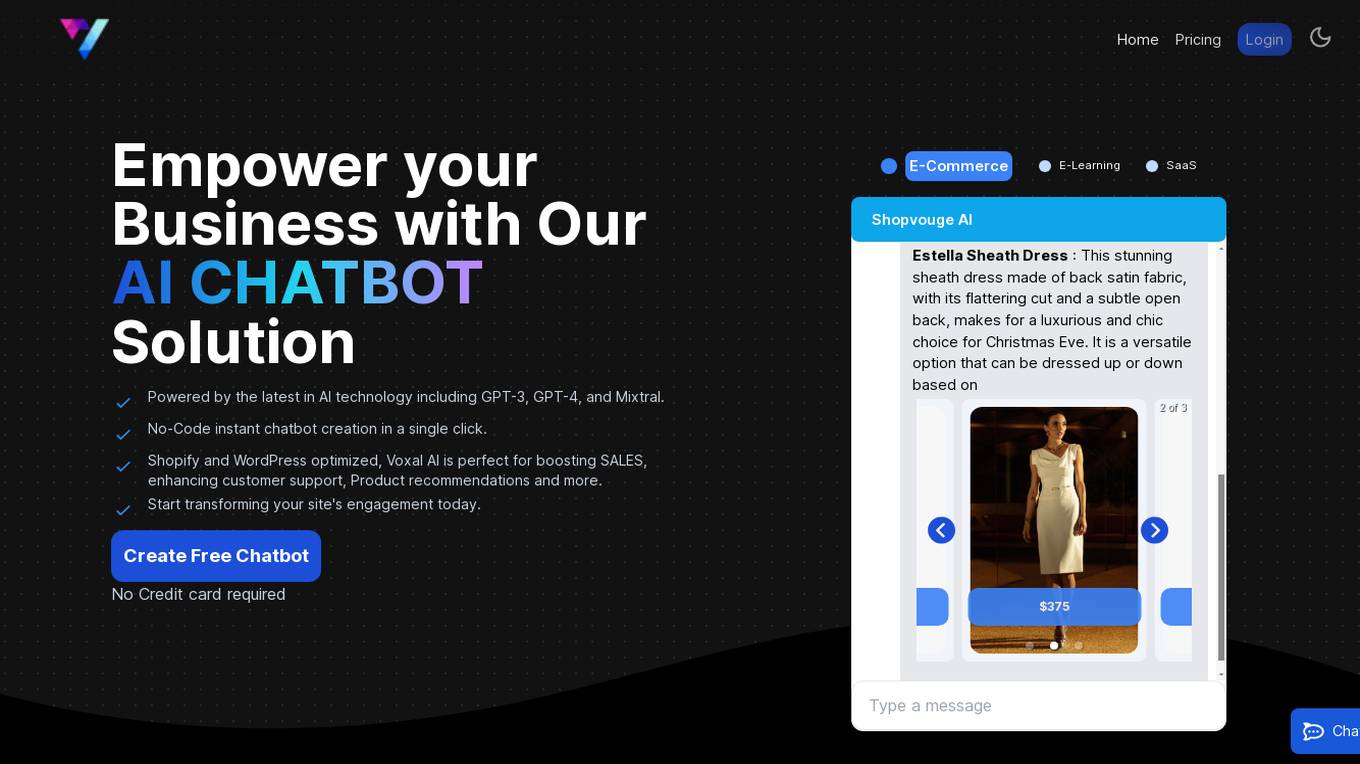
Voxal AI
Voxal AI is an AI-powered chatbot solution designed to enhance sales, customer support, and user engagement on websites. It offers a range of features including multiple AI models, A/B testing, cross-platform compatibility, multilingual support, advanced analytics, customization options, and multi-platform integration. Voxal AI is suitable for various industries such as e-commerce, e-learning, and SaaS, and can be used for tasks such as product recommendations, lead qualification, and automated customer support.
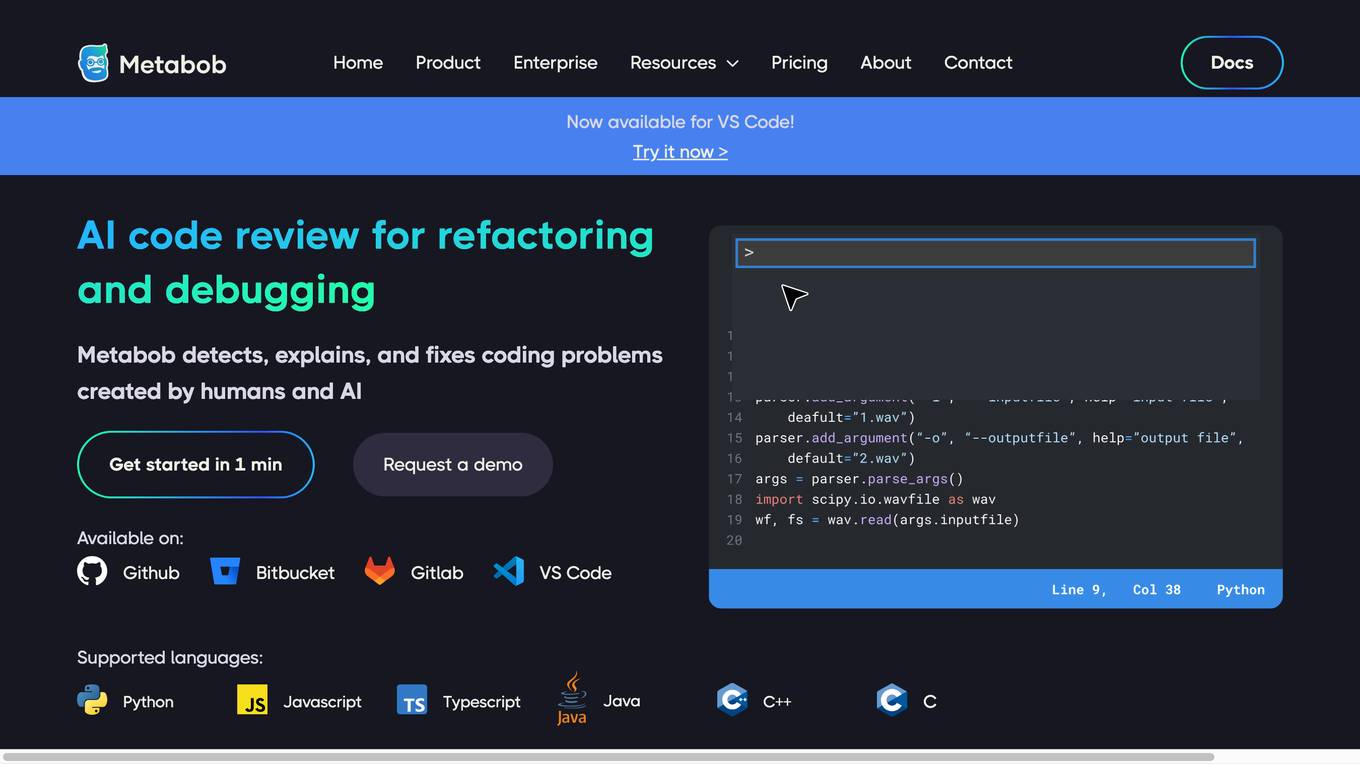
Metabob
Metabob is an AI-powered code review tool that helps developers detect, explain, and fix coding problems. It utilizes proprietary graph neural networks to detect problems and LLMs to explain and resolve them, combining the best of both worlds. Metabob's AI is trained on millions of bug fixes performed by experienced developers, enabling it to detect complex problems that span across codebases and automatically generate fixes for them. It integrates with popular code hosting platforms such as GitHub, Bitbucket, Gitlab, and VS Code, and supports various programming languages including Python, Javascript, Typescript, Java, C++, and C.
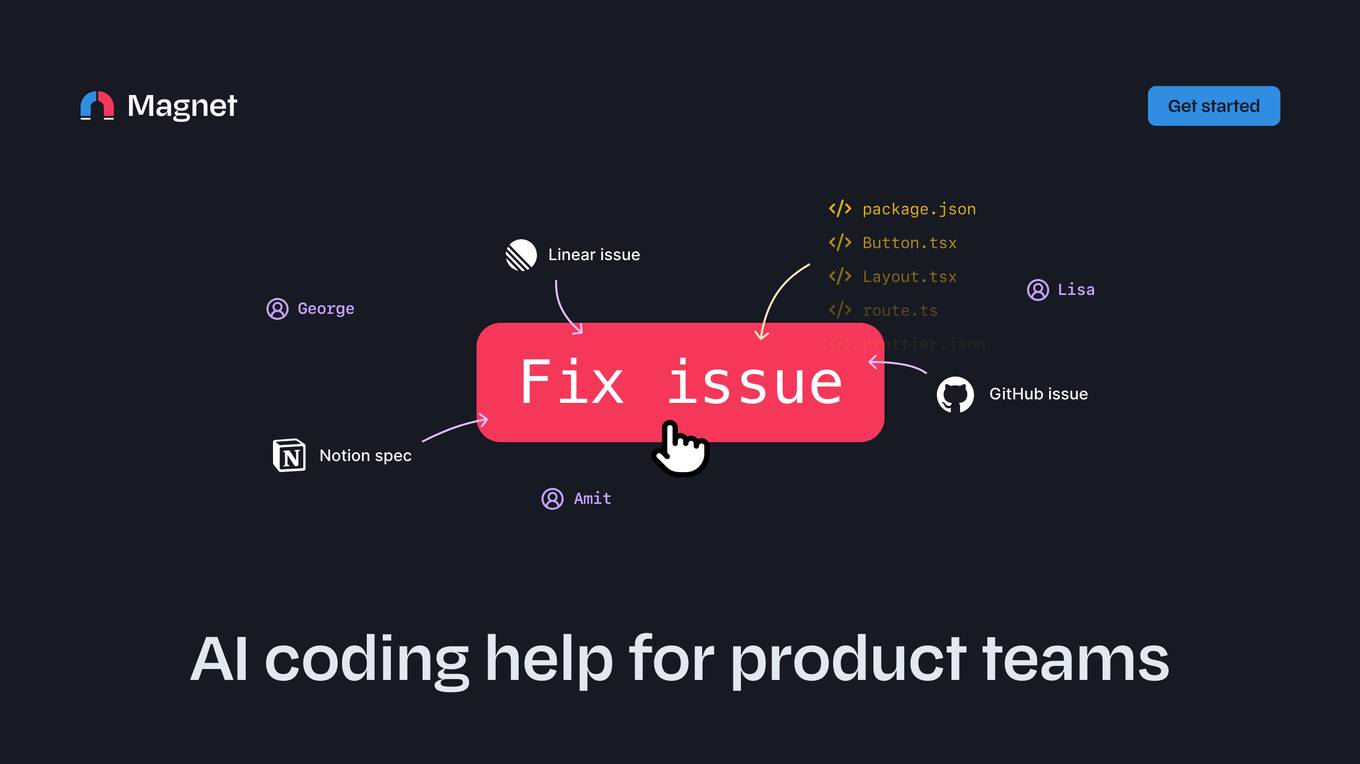
Magnet
Magnet is an AI coding assistant that helps product teams fix issues, share AI threads, and organize projects. It integrates with Linear, GitHub, and Notion, and provides auto-suggested files and code files for personalized and accurate AI recommendations. Magnet also offers prompt templates to help users get started and suggests quick fixes for bugs or enhancements.
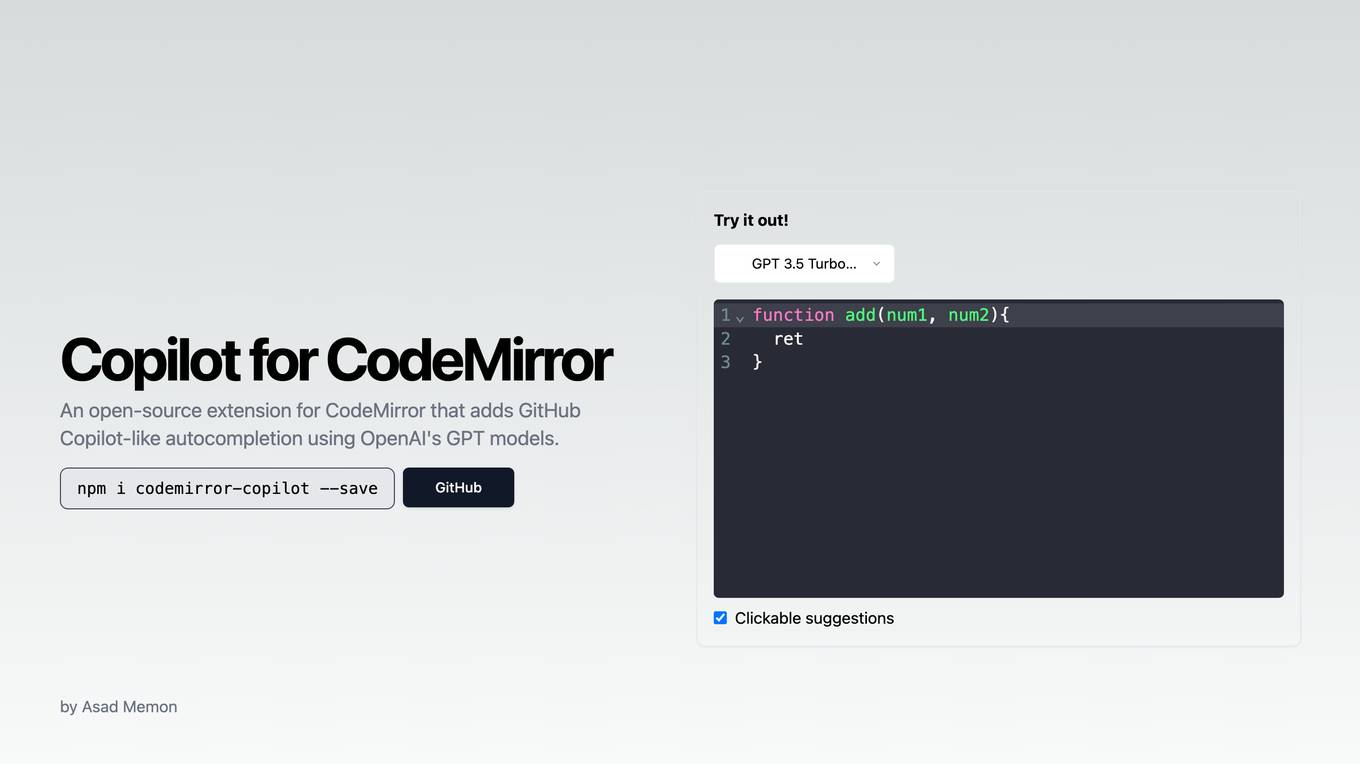
Copilot for CodeMirror
Copilot for CodeMirror is an open-source extension for CodeMirror that enhances coding experience by providing autocompletion using OpenAI's GPT models. It aims to assist developers in writing code more efficiently and accurately by suggesting code snippets and completing code lines based on context. The tool integrates with CodeMirror seamlessly, offering a user-friendly interface for developers to leverage AI technology in their coding workflow.
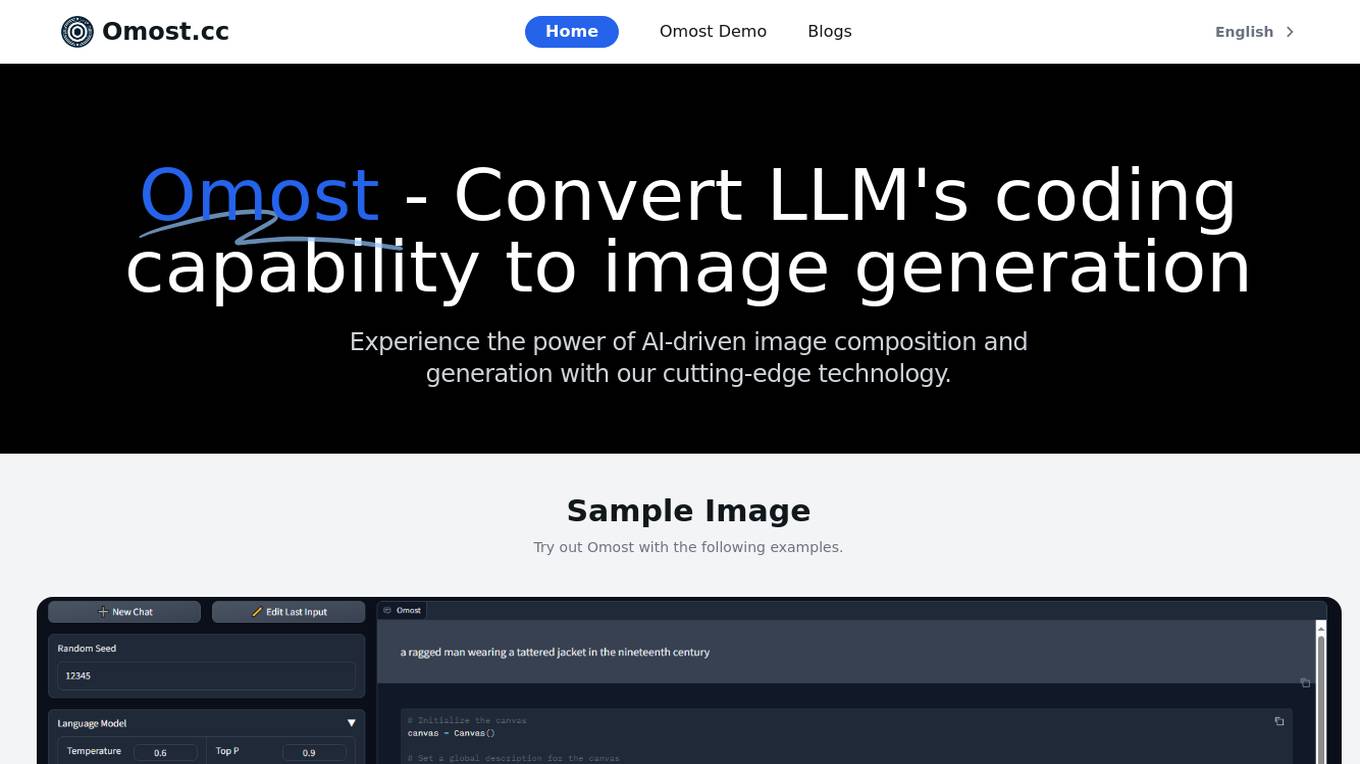
Omost
Omost is an AI-driven application that leverages Large Language Models (LLMs) to convert coding capabilities into image generation and composition. By utilizing pretrained LLM models, Omost enables users to create high-quality visual content from simple text prompts. The technology behind Omost revolutionizes image creation by integrating AI with LLMs, offering users a powerful tool for enhancing creativity and efficiency in various industries.
2 - Open Source AI Tools
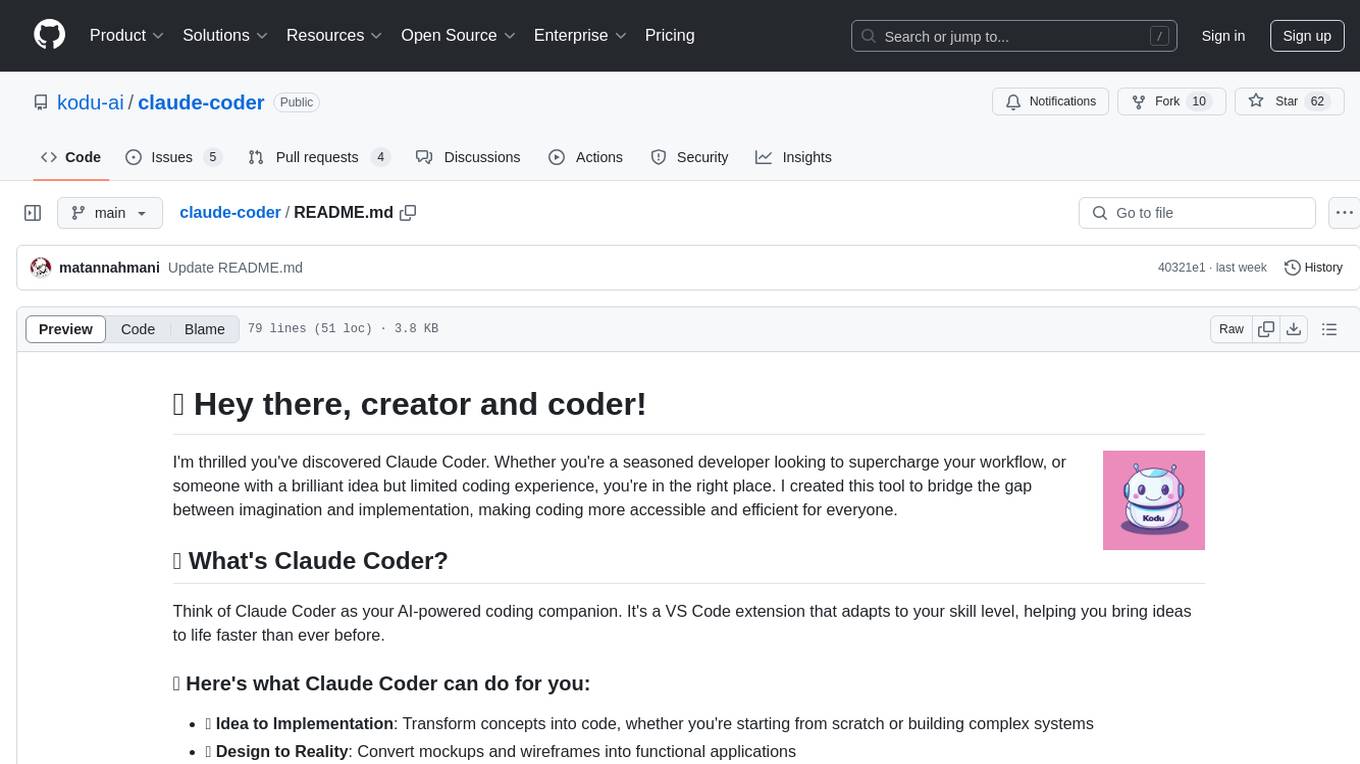
claude-coder
Claude Coder is an AI-powered coding companion in the form of a VS Code extension that helps users transform ideas into code, convert designs into applications, debug intuitively, accelerate development with automation, and improve coding skills. It aims to bridge the gap between imagination and implementation, making coding accessible and efficient for developers of all skill levels.
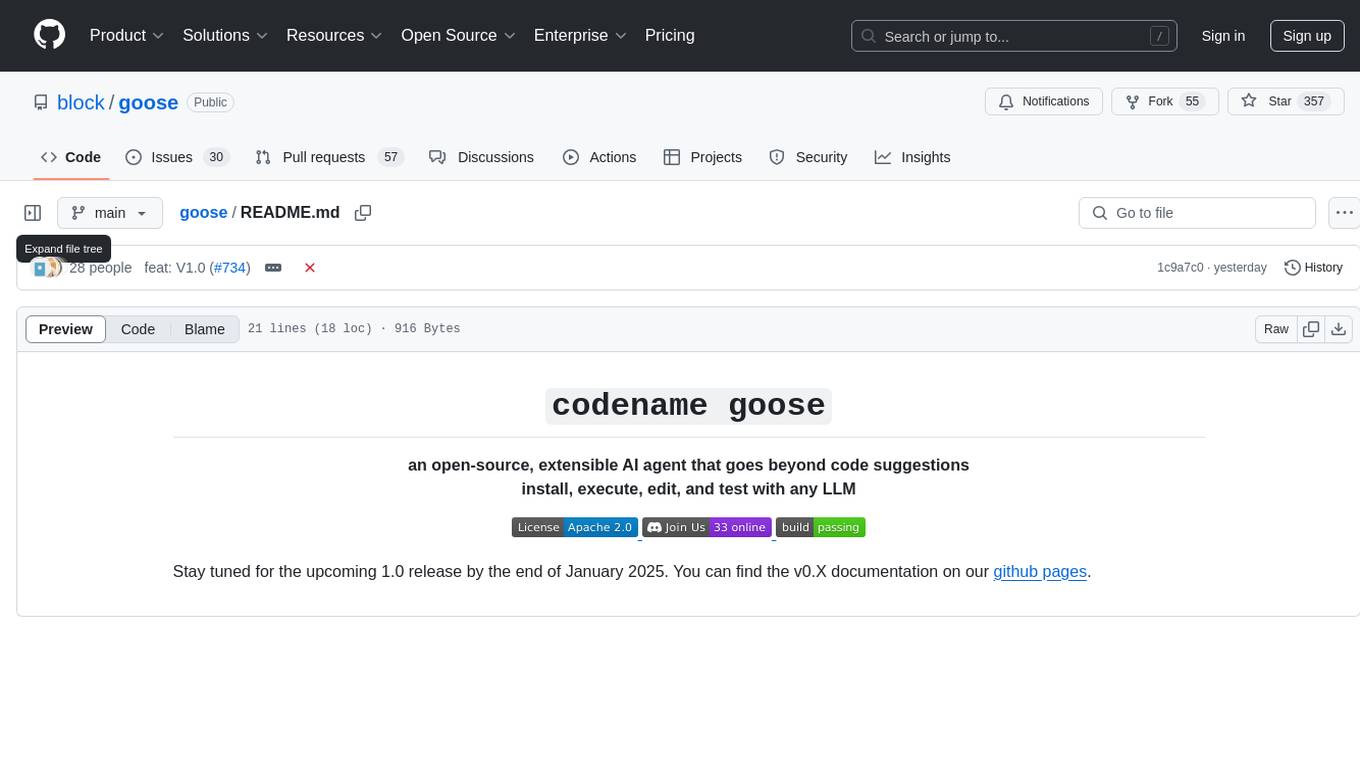
goose
Codename Goose is an open-source, extensible AI agent designed to provide functionalities beyond code suggestions. Users can install, execute, edit, and test with any LLM. The tool aims to enhance the coding experience by offering advanced features and capabilities. Stay updated for the upcoming 1.0 release scheduled by the end of January 2025. Explore the v0.X documentation available on the project's GitHub pages.
20 - OpenAI Gpts
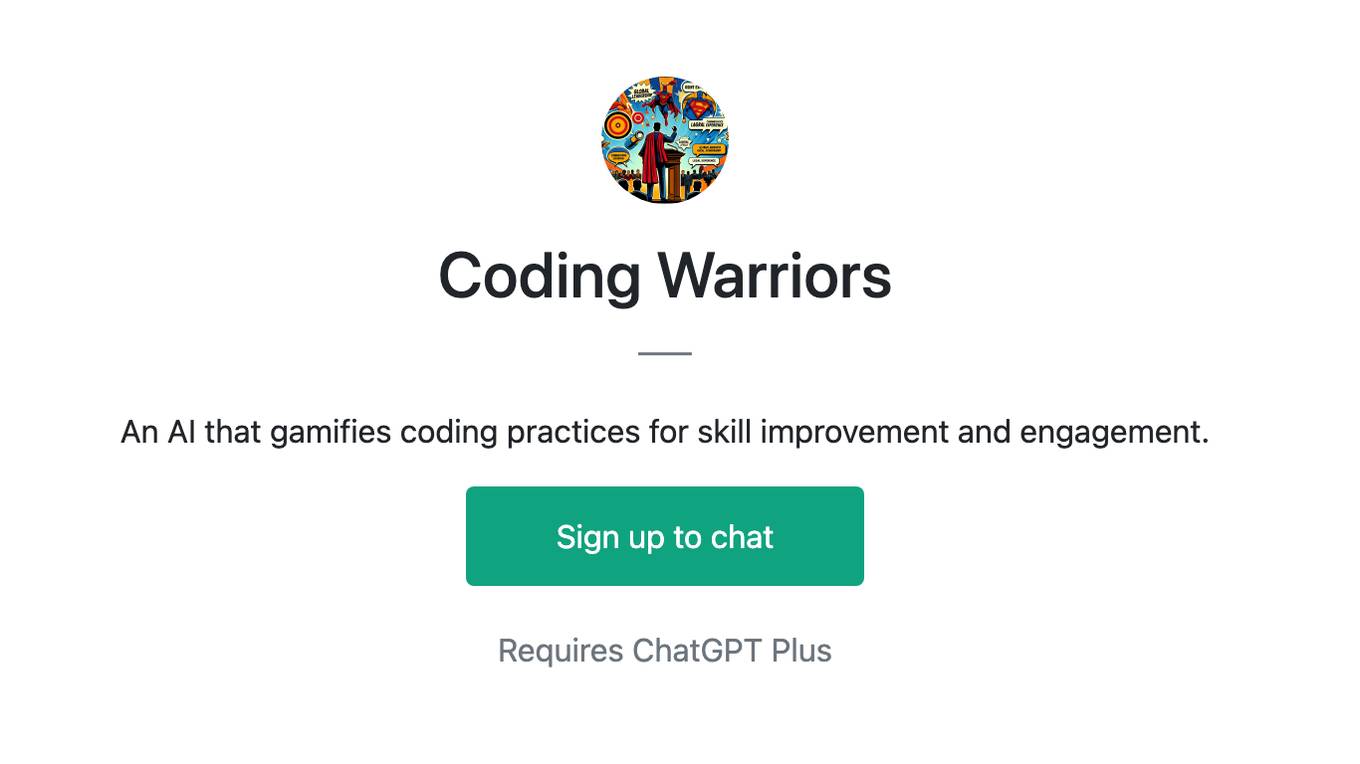
Coding Warriors
An AI that gamifies coding practices for skill improvement and engagement.

Senior Software Engineer - Python
Advance your Python skills and break through tough coding problems with expert mentoring, blending real-world wisdom and cutting-edge techniques.
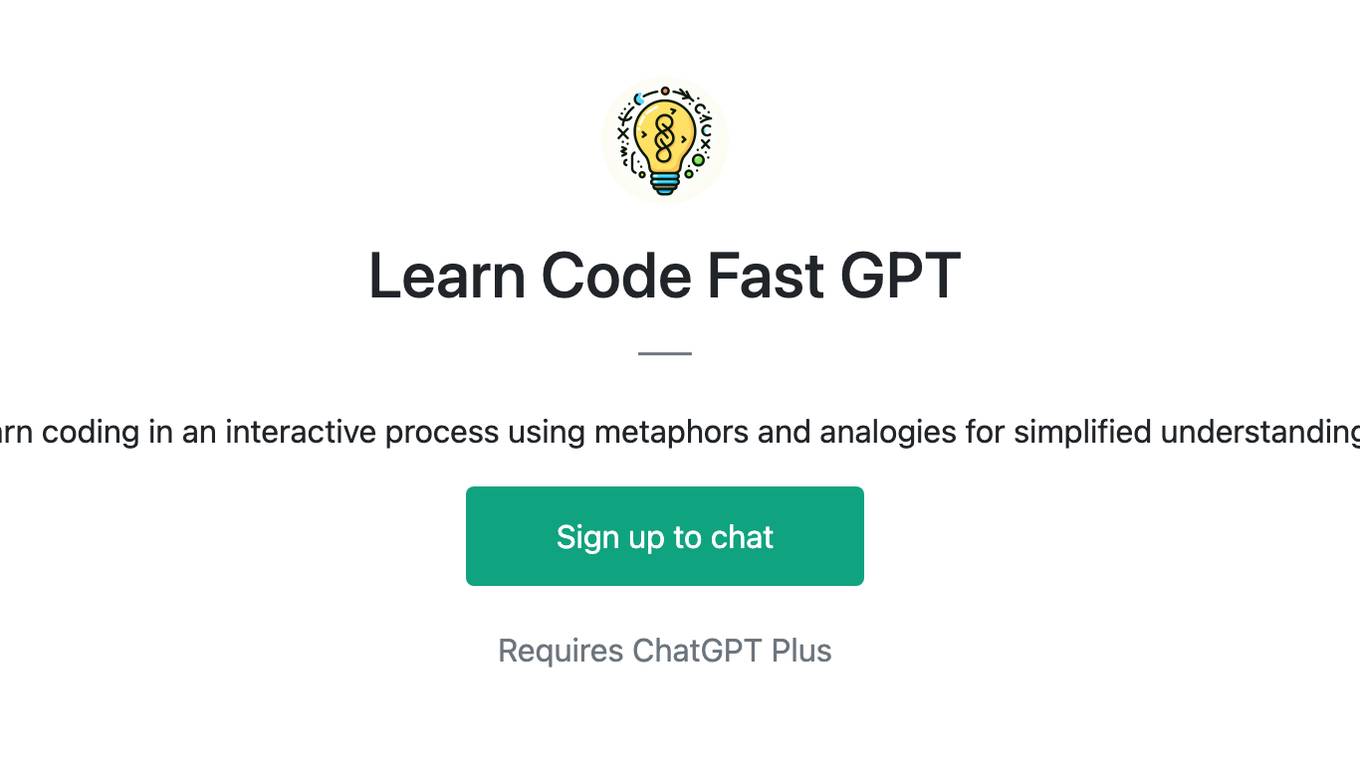
Learn Code Fast GPT
Learn coding in an interactive process using metaphors and analogies for simplified understanding.

Solidity Sage
I'm an expert in Solidity, DeFi, and Web tech, skilled in coding and debugging.
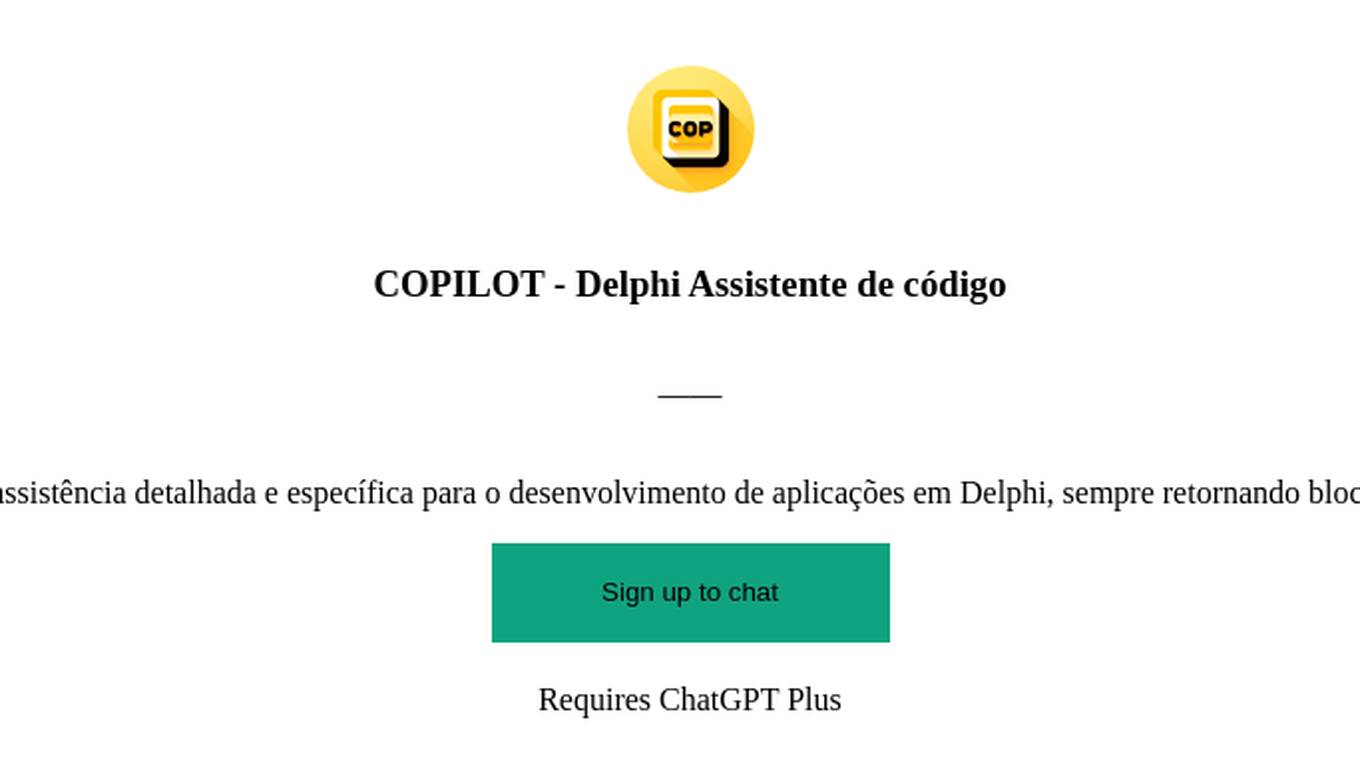
COPILOT - Delphi Assistente de código
Este GPT fornece assistência detalhada e específica para o desenvolvimento de aplicações em Delphi, sempre retornando blocos de código únicos.
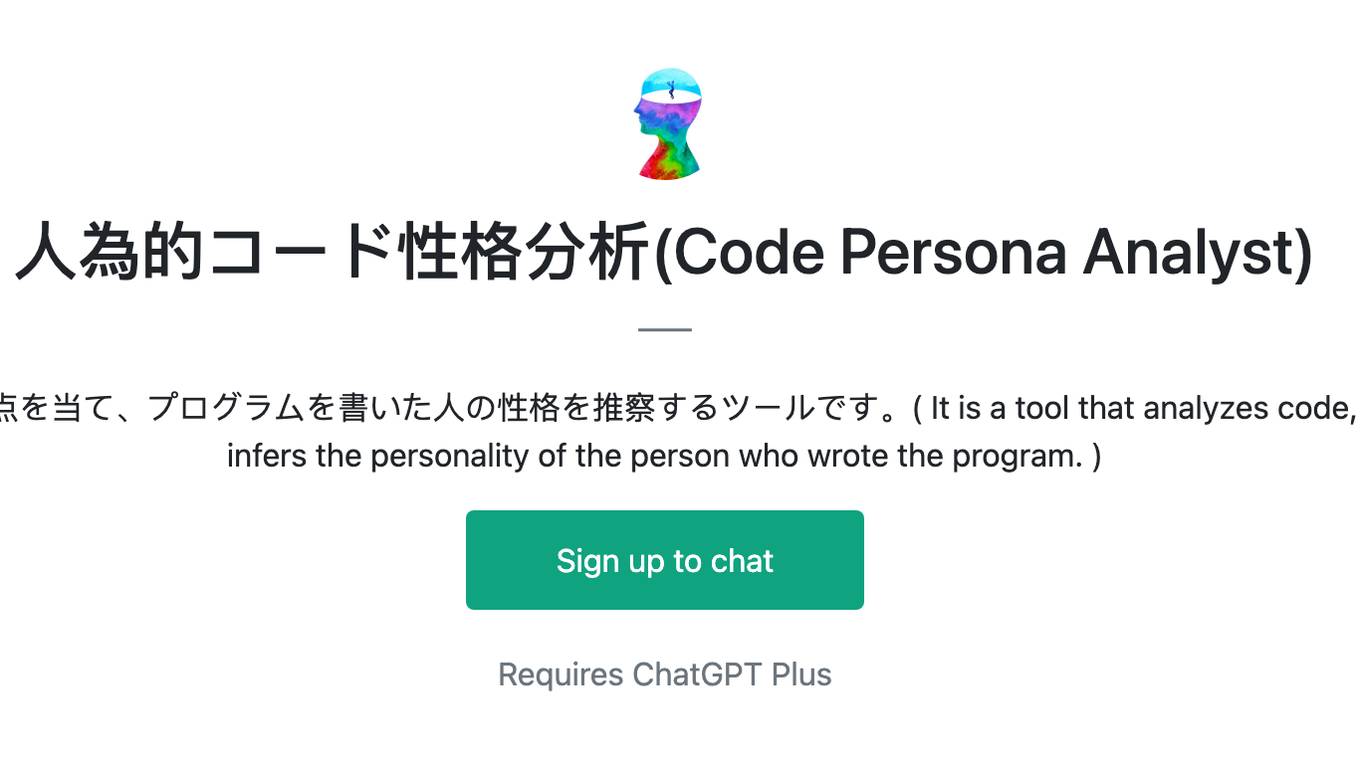
人為的コード性格分析(Code Persona Analyst)
コードを分析し、言語ではなくスタイルに焦点を当て、プログラムを書いた人の性格を推察するツールです。( It is a tool that analyzes code, focuses on style rather than language, and infers the personality of the person who wrote the program. )
